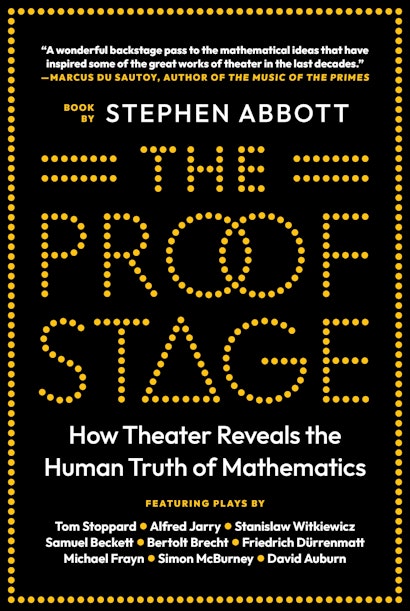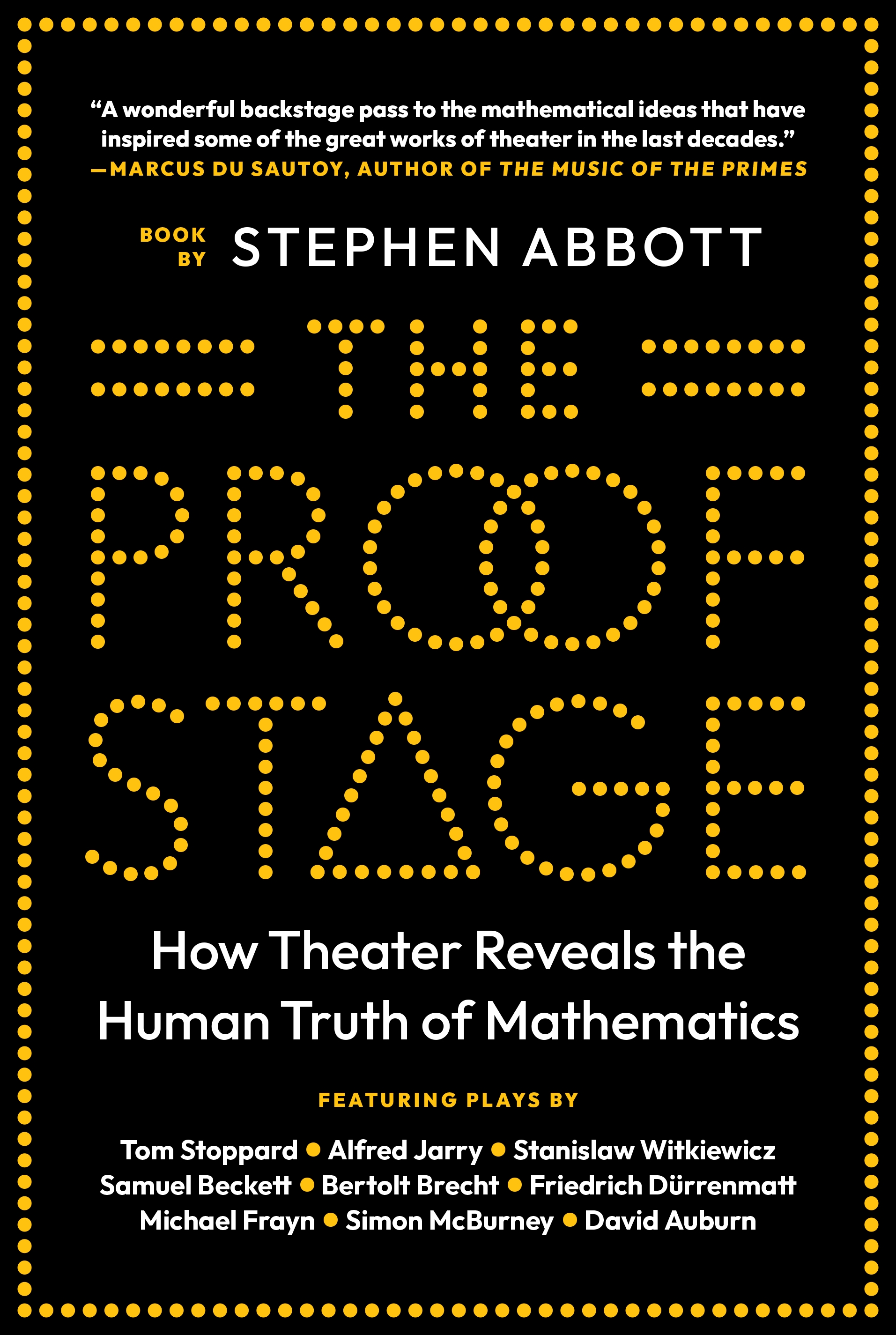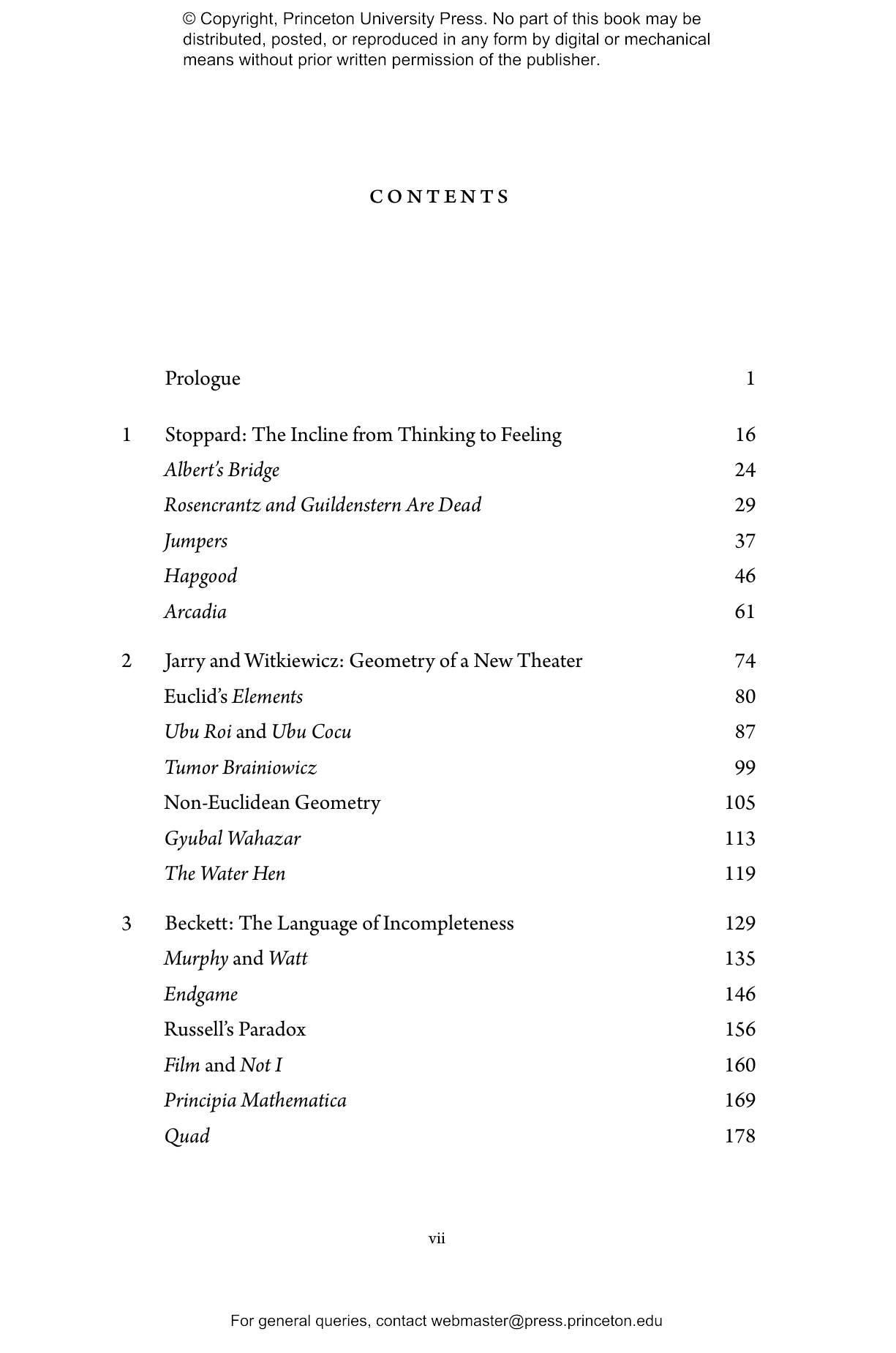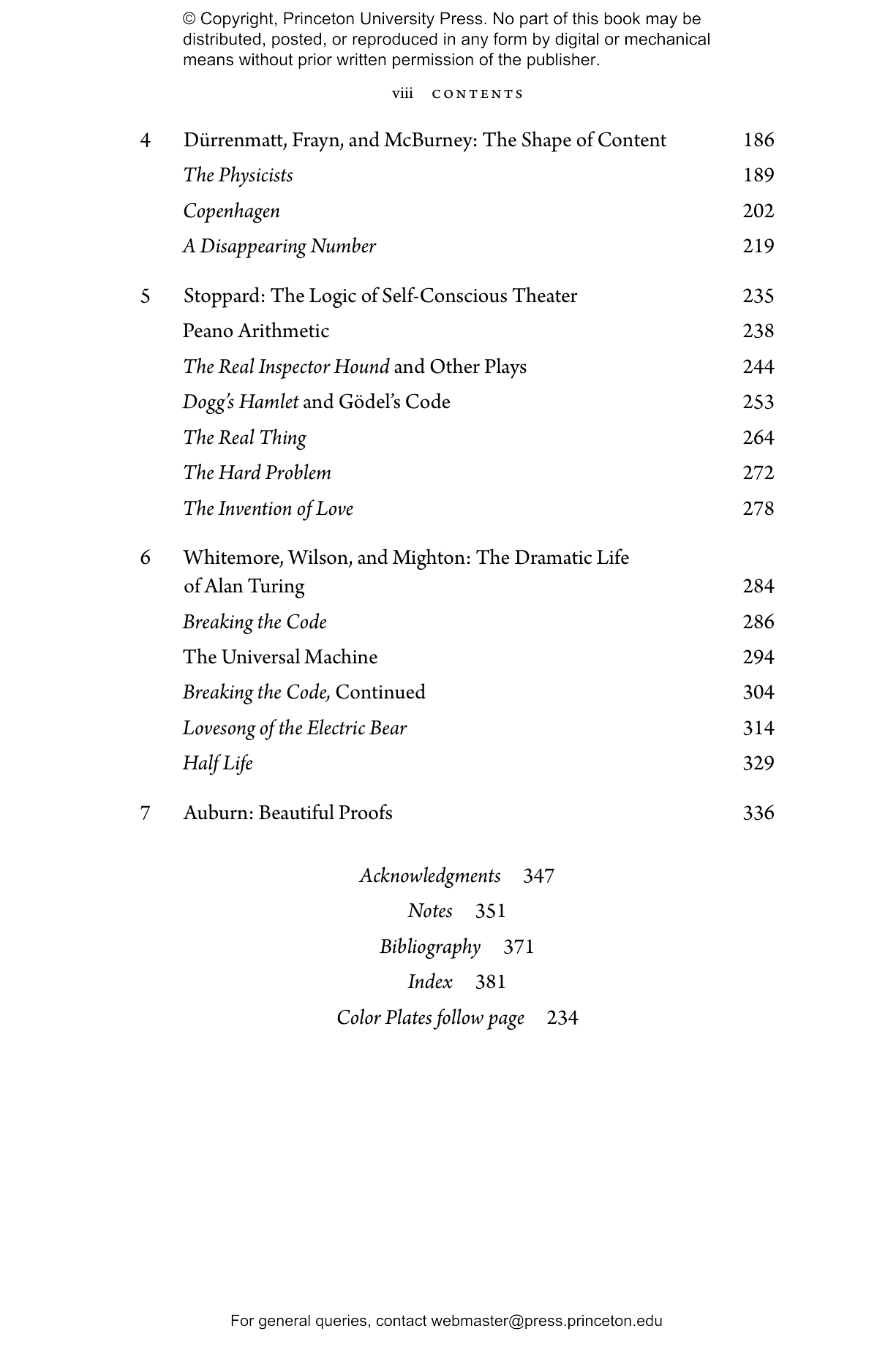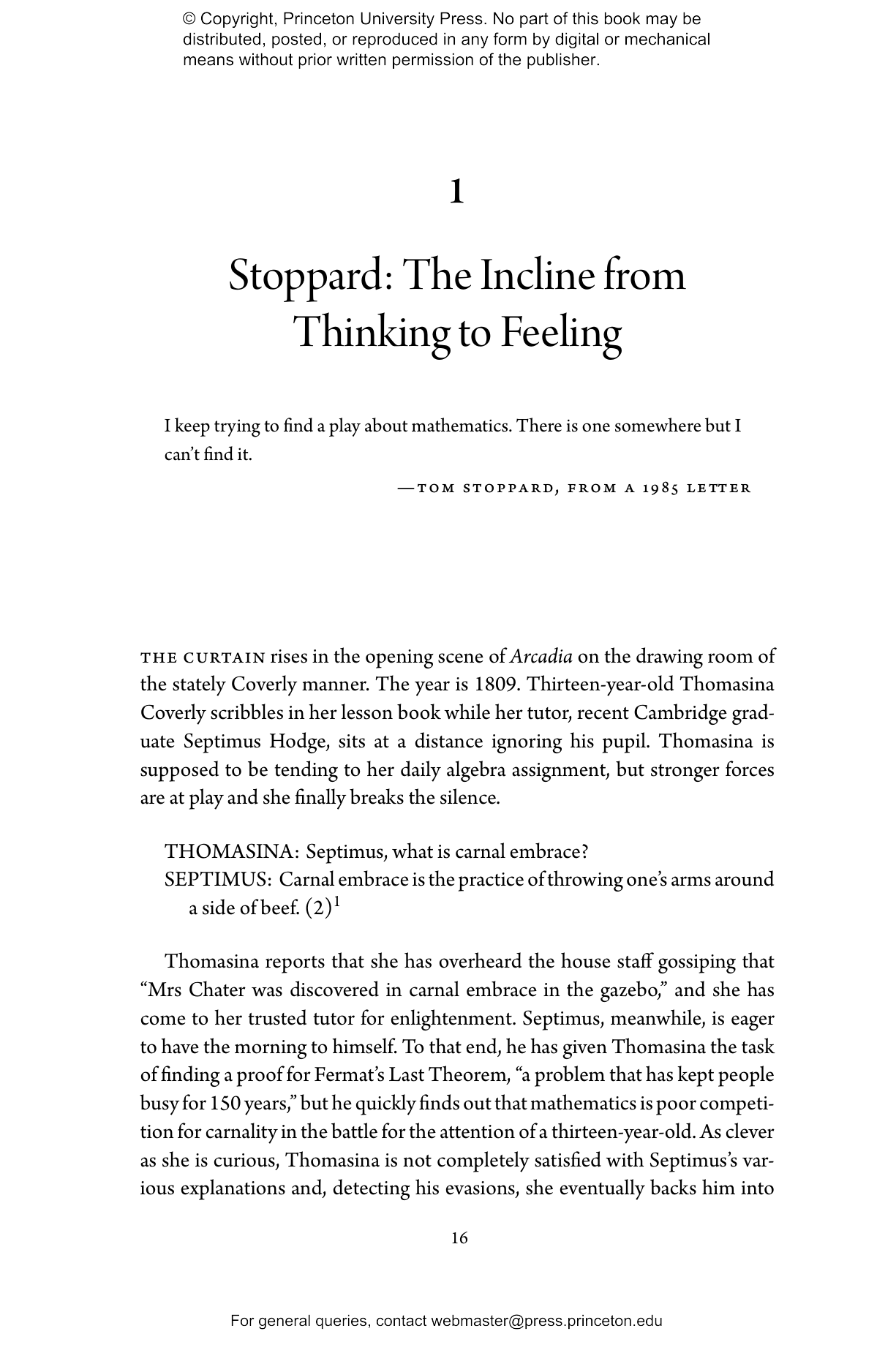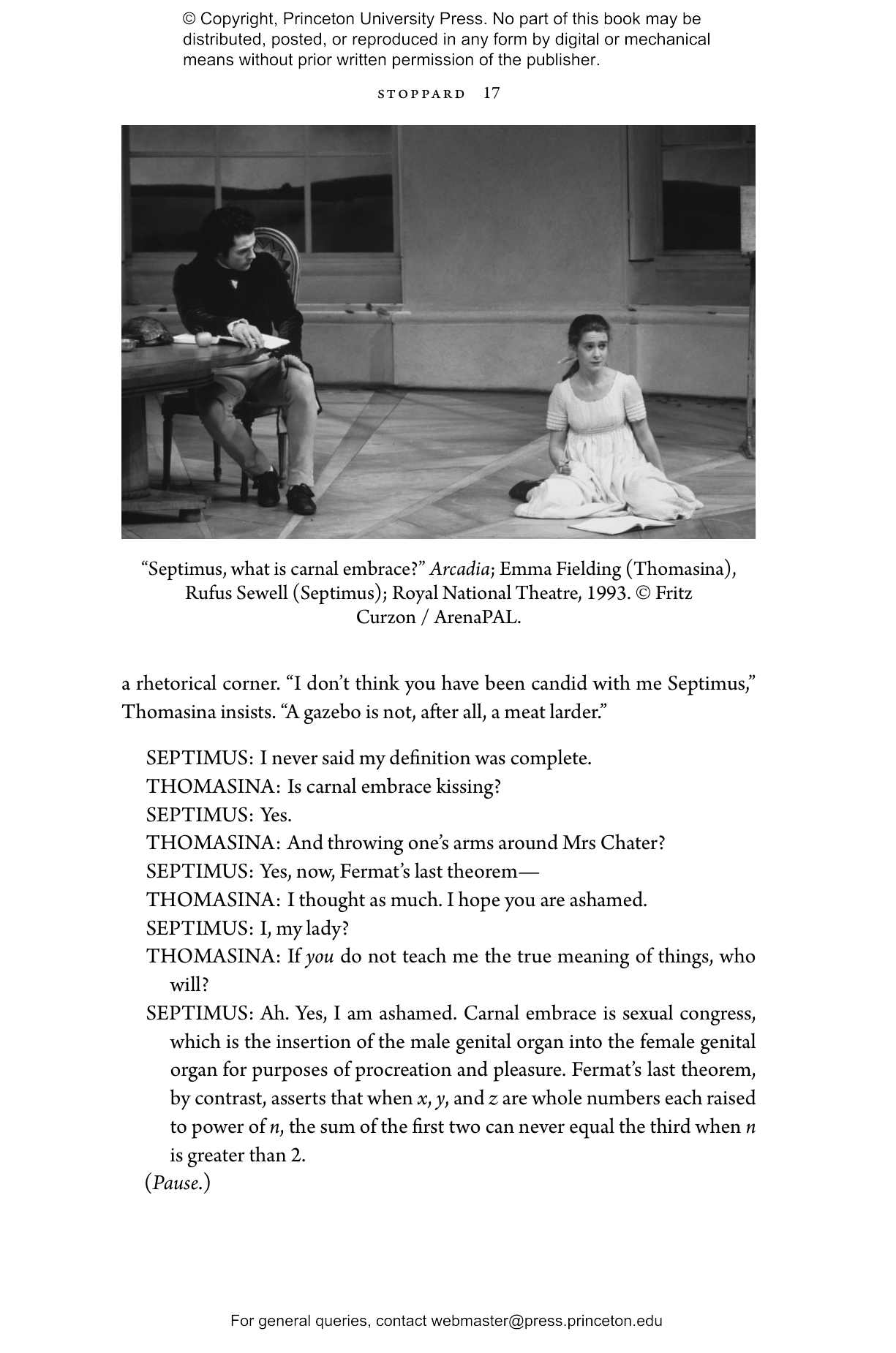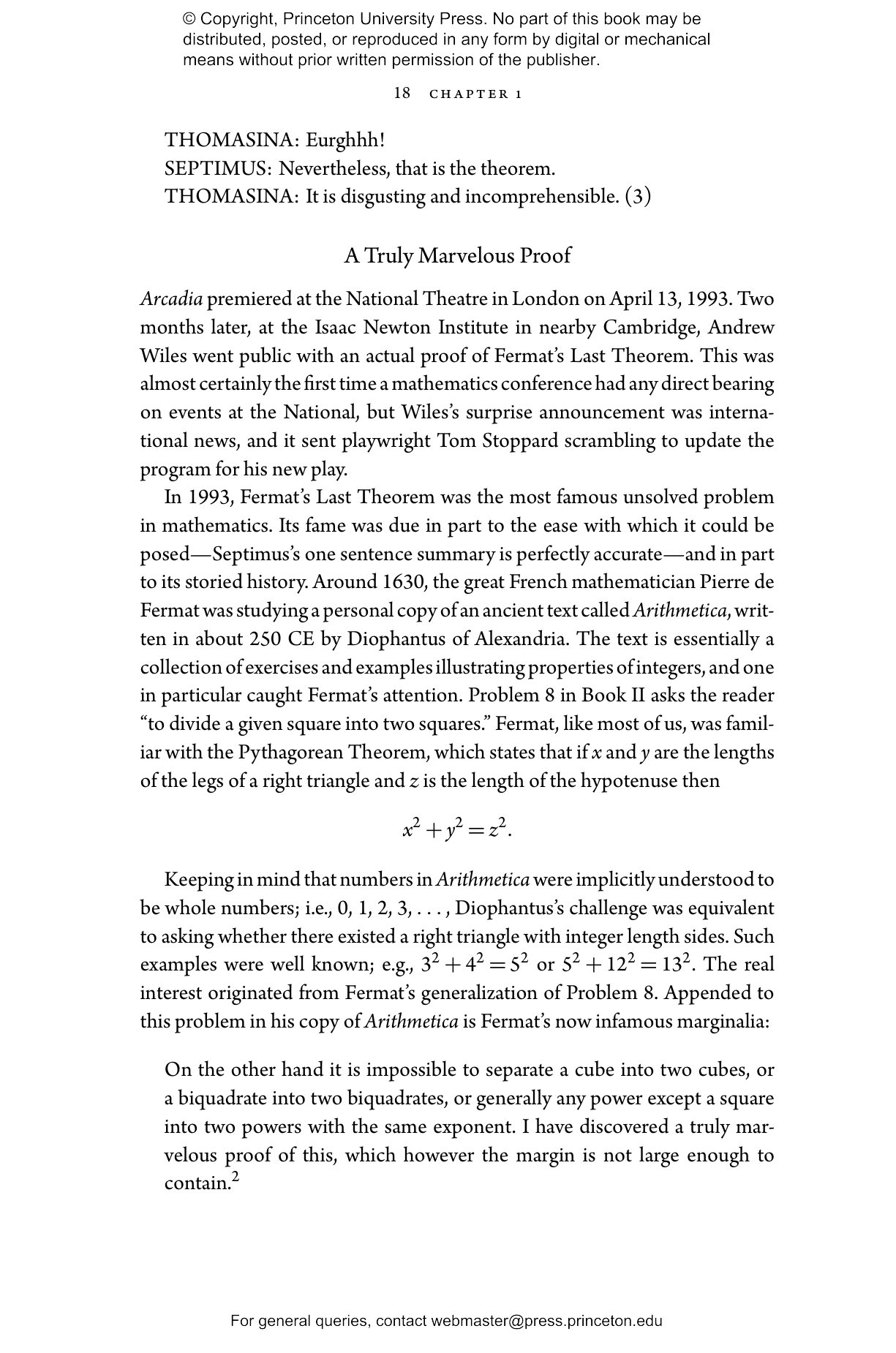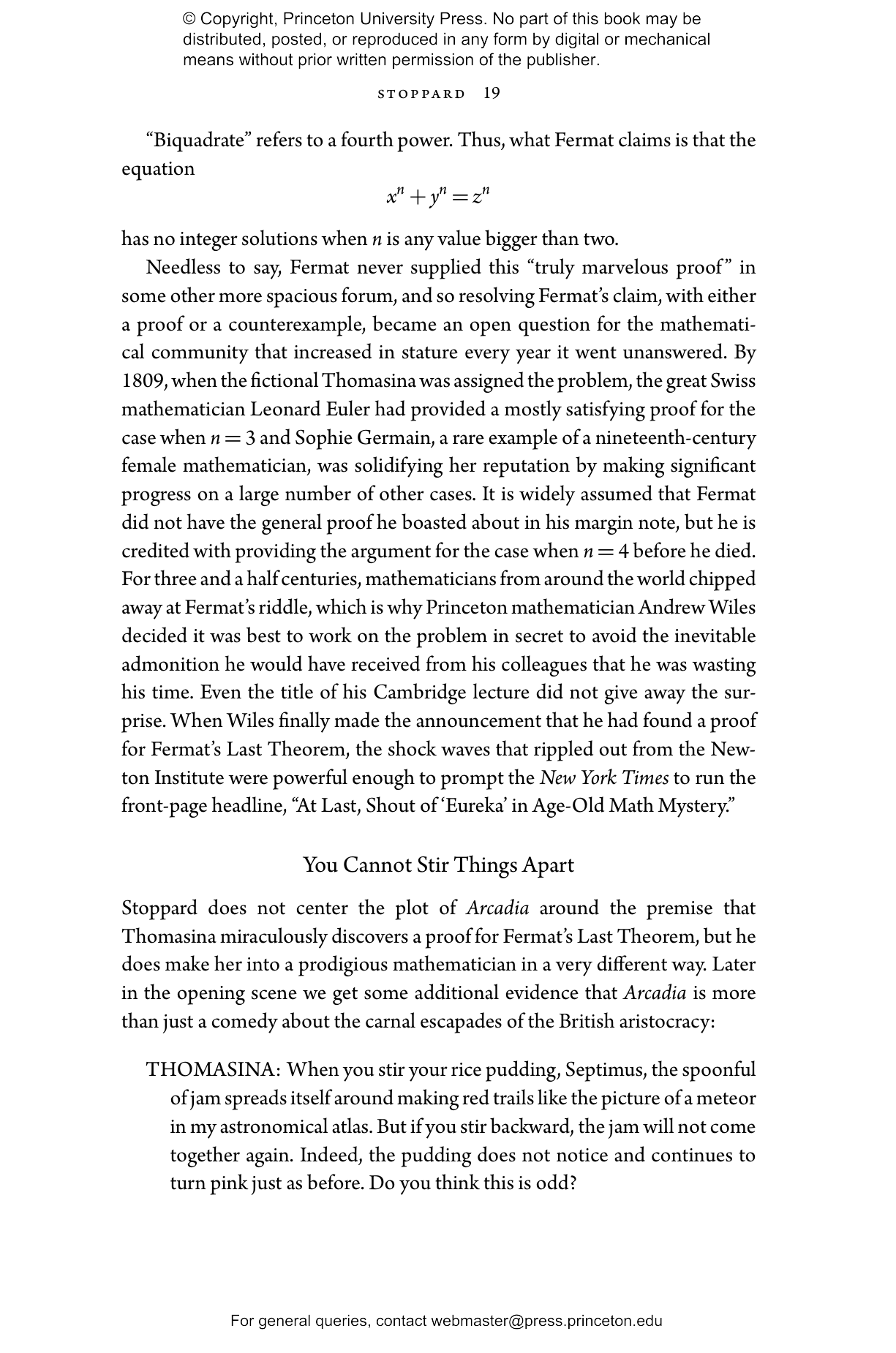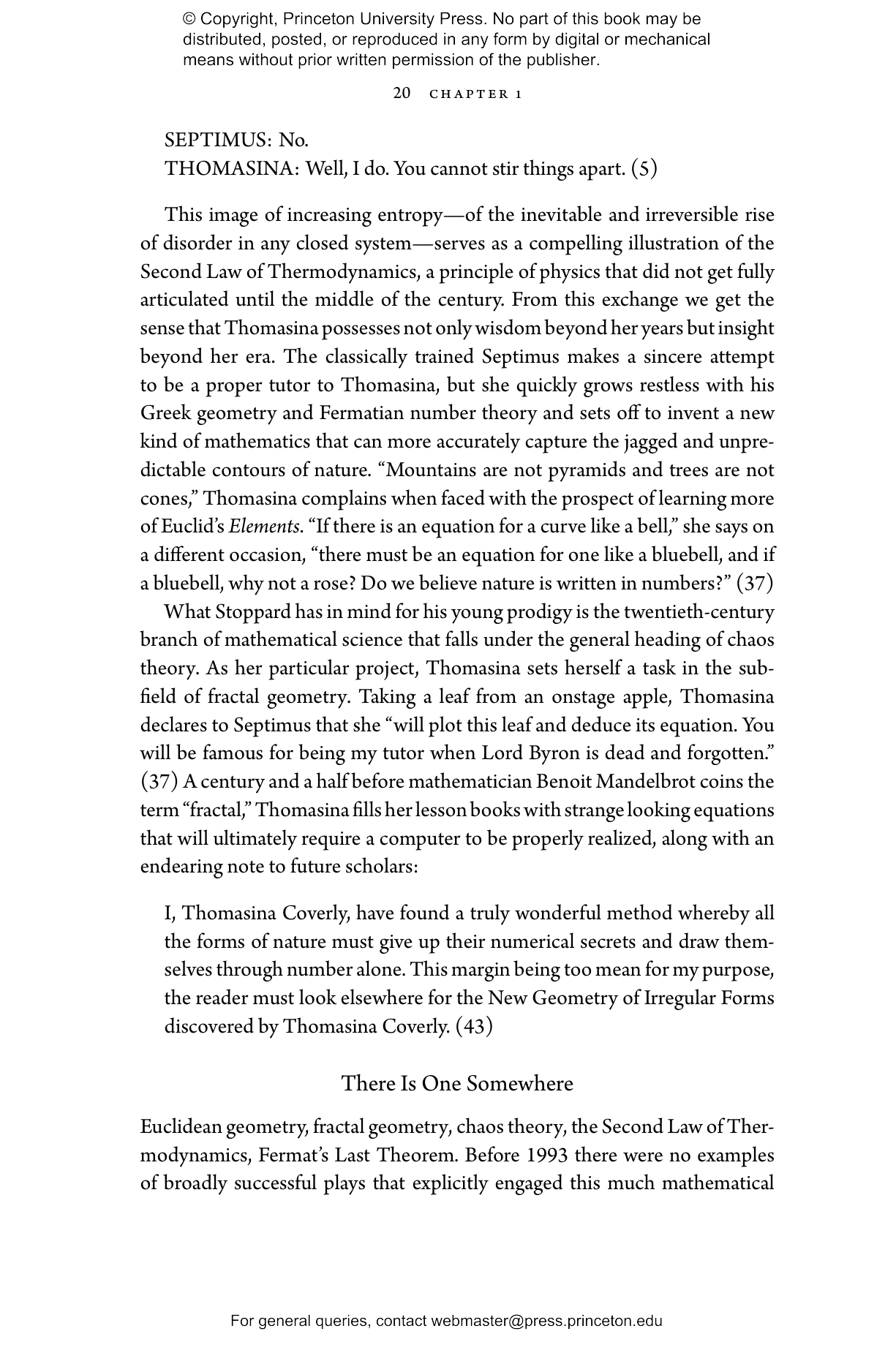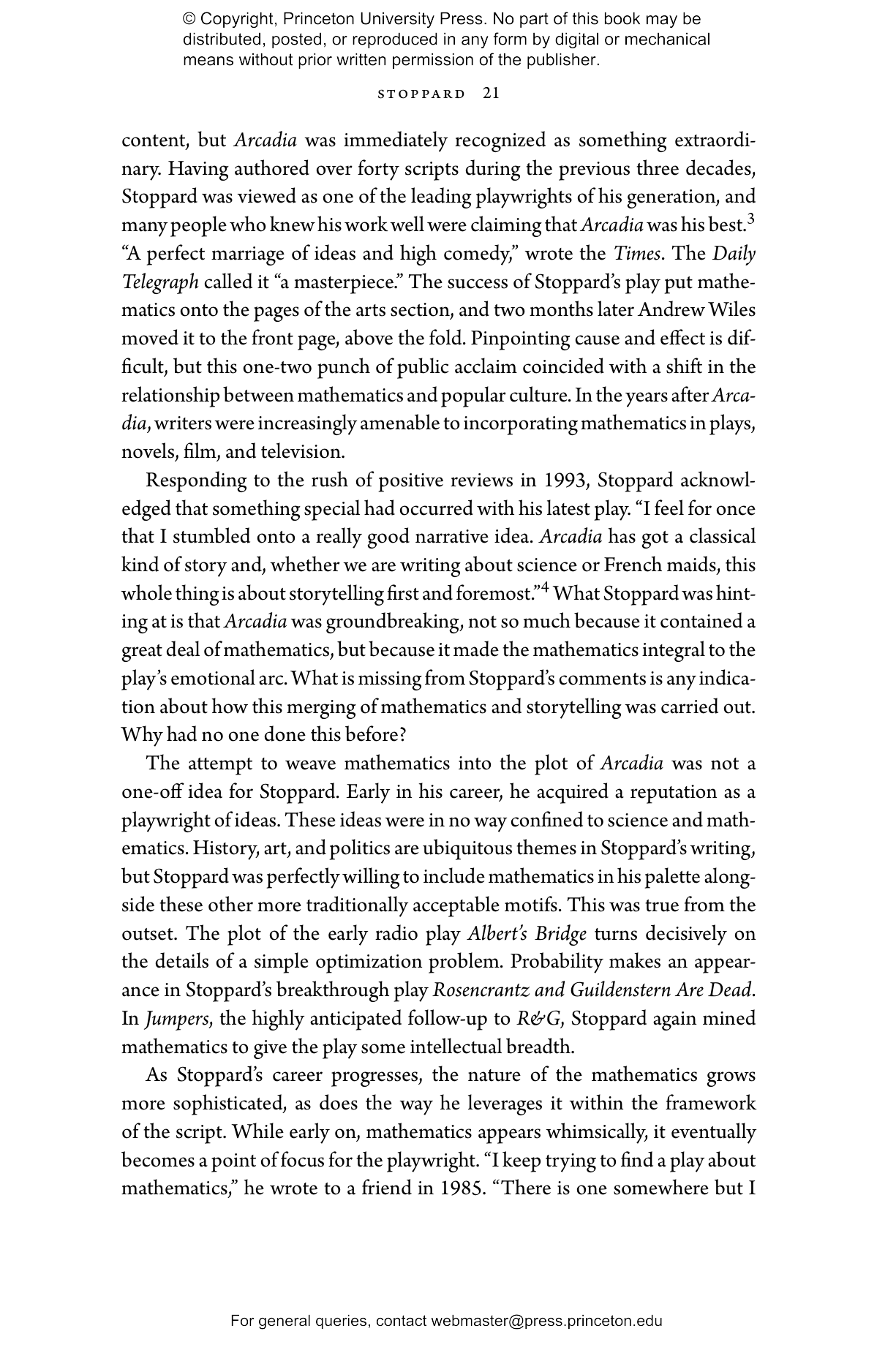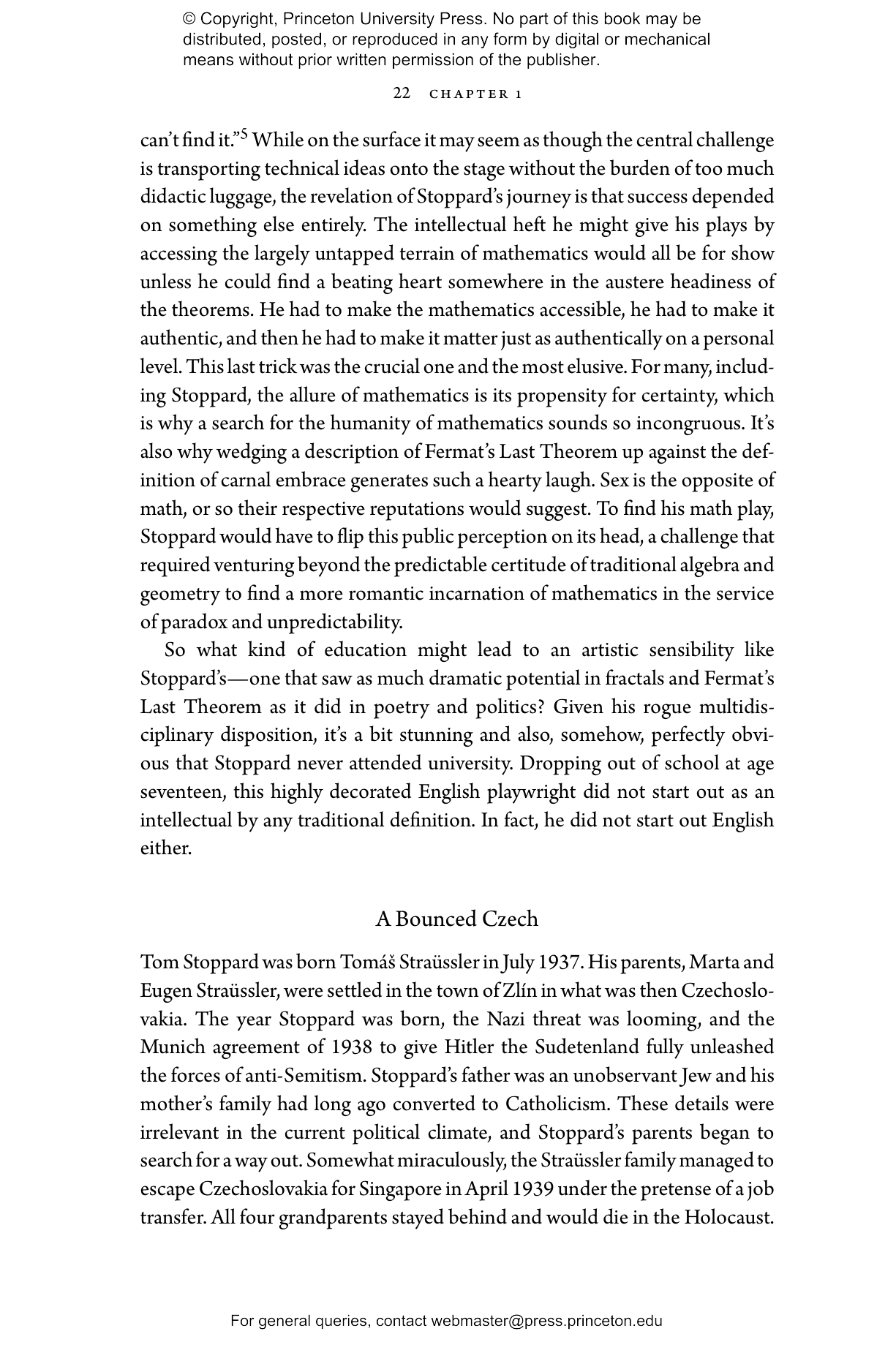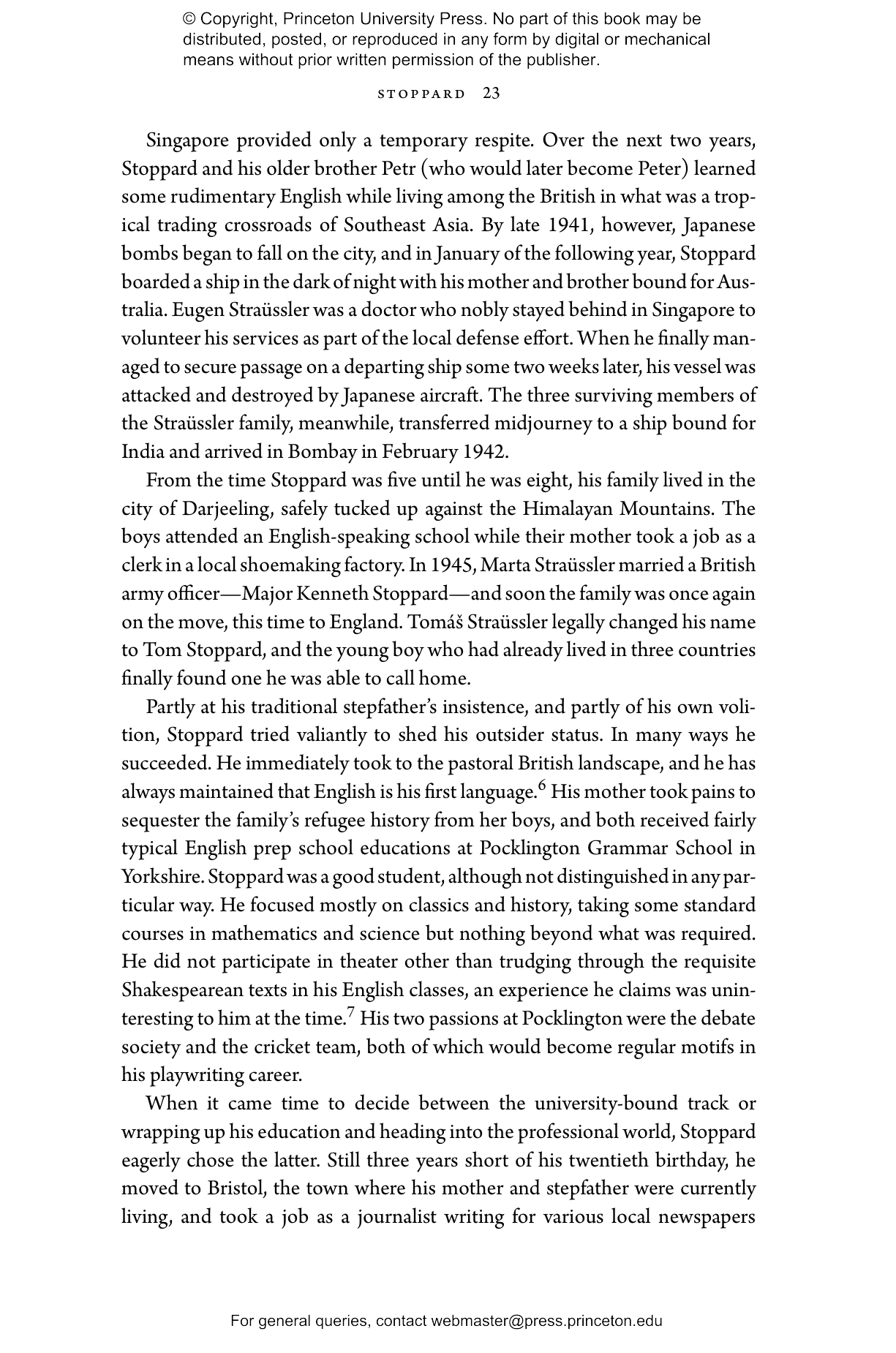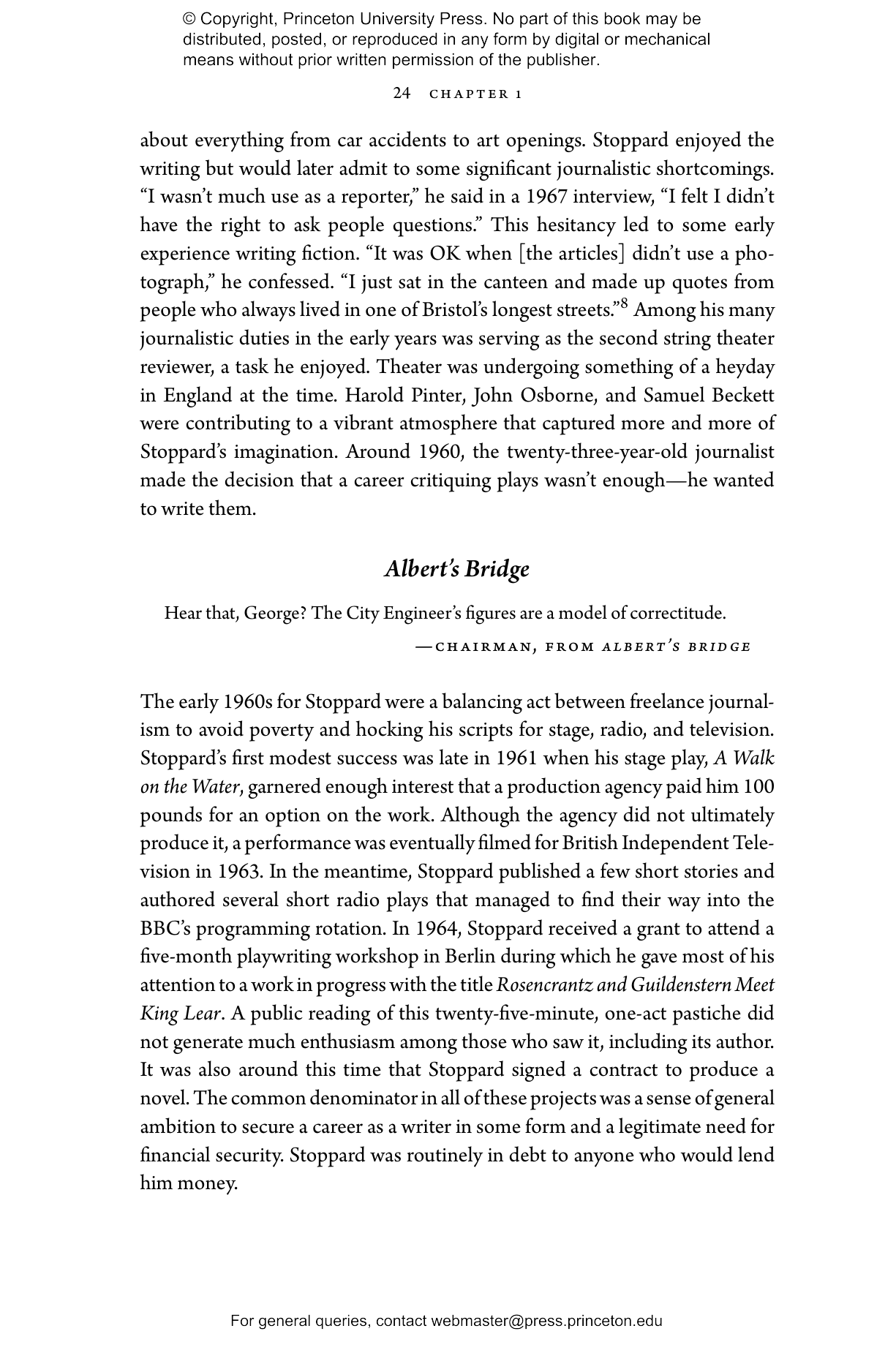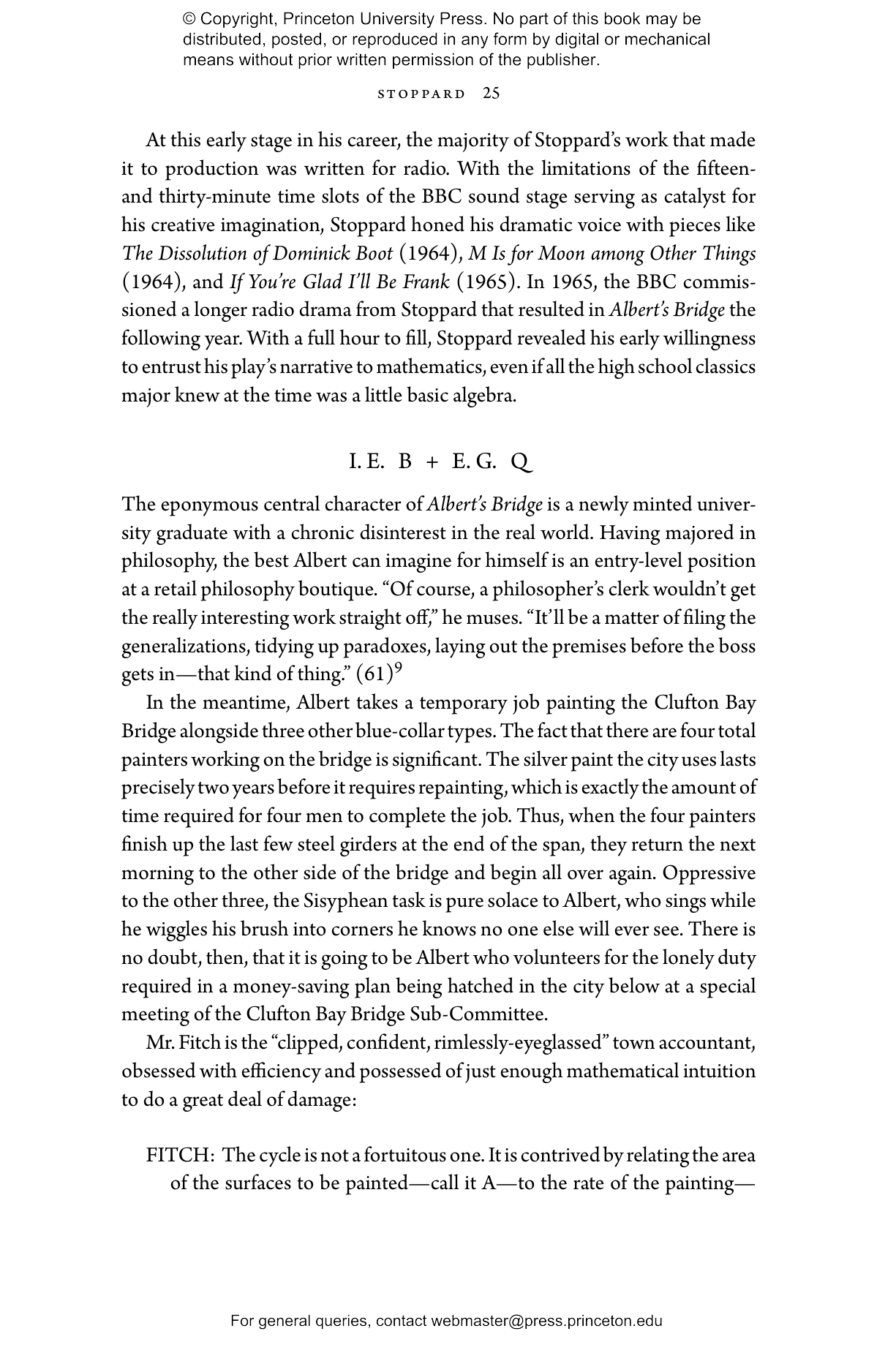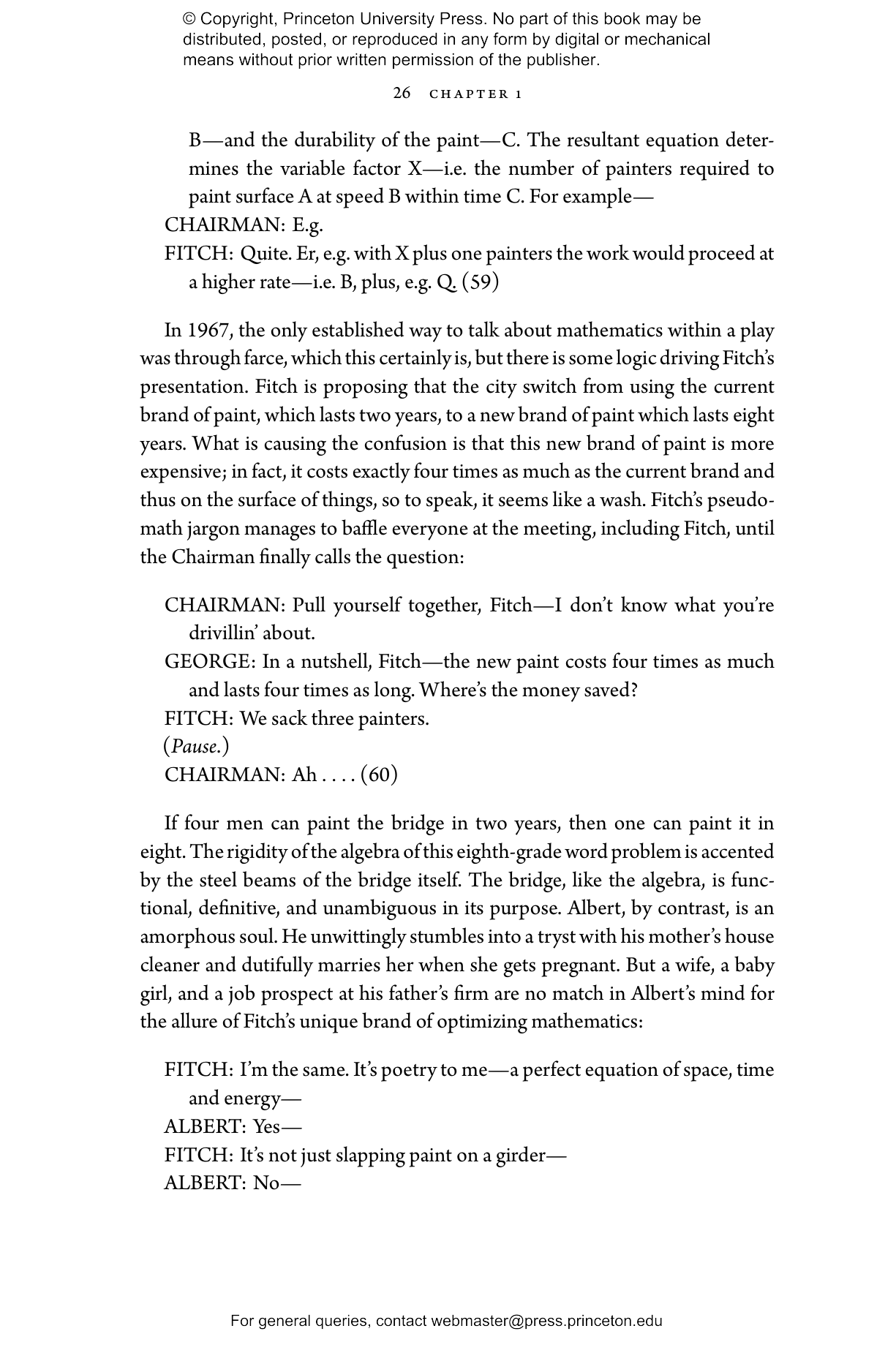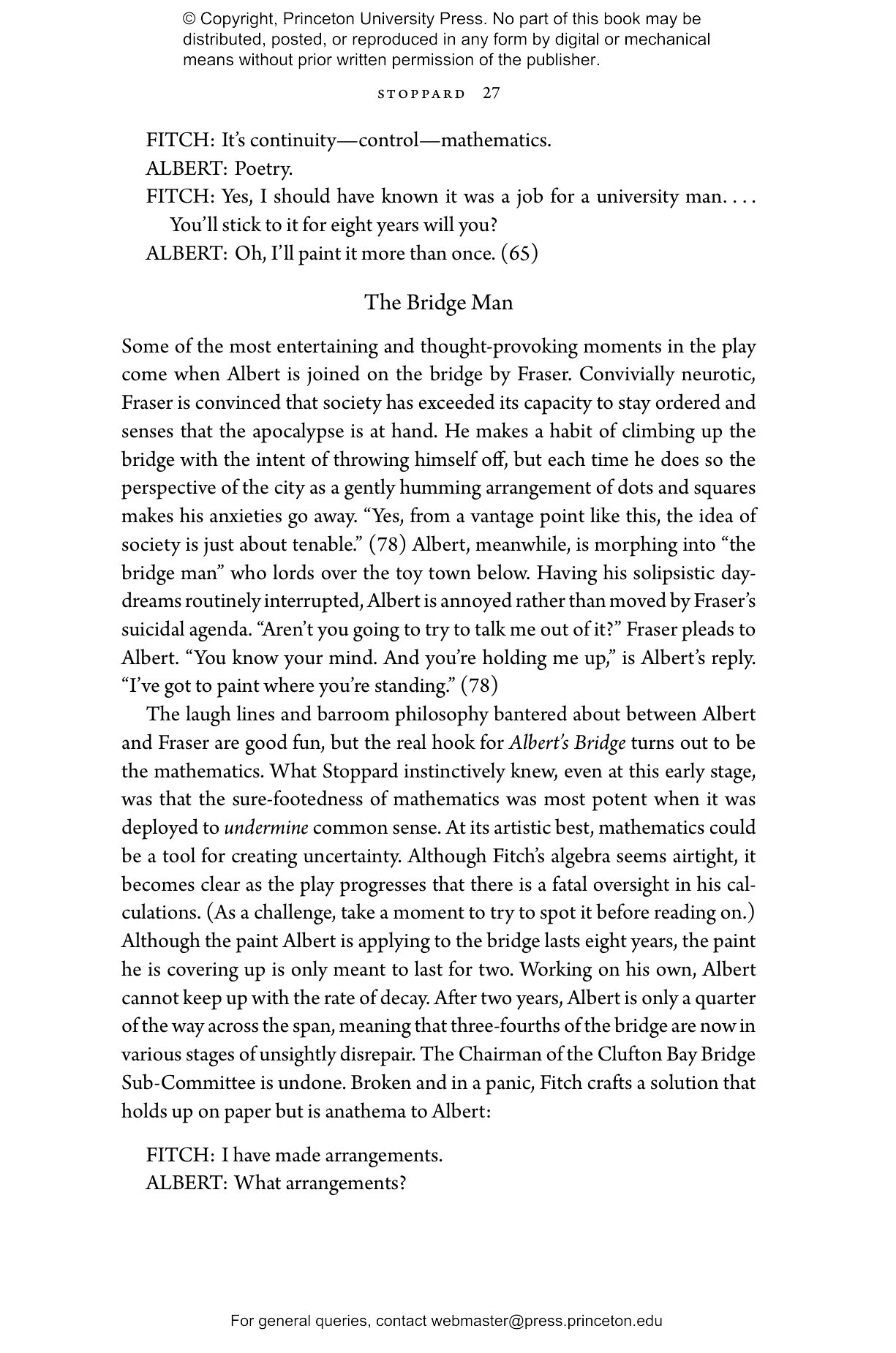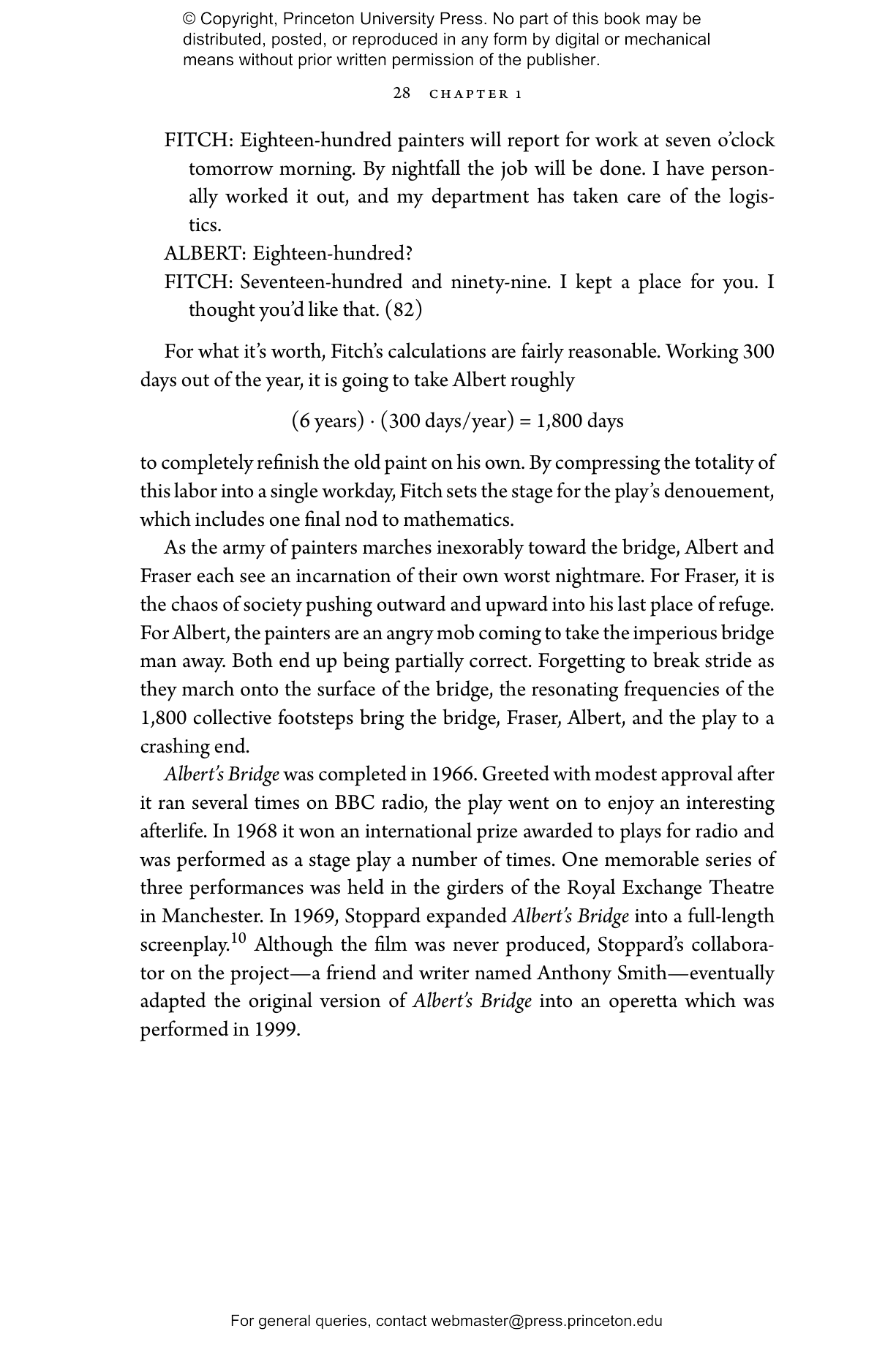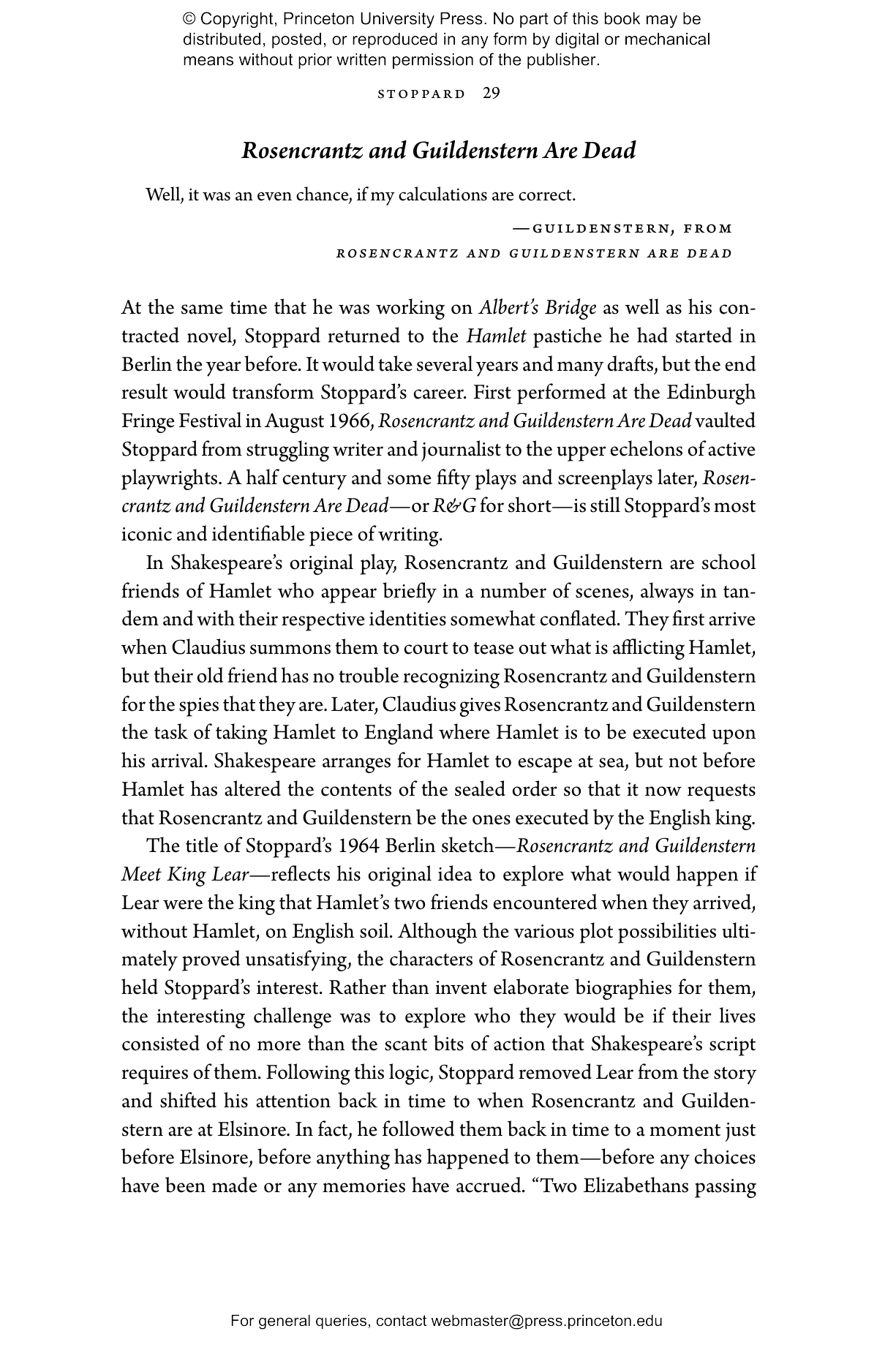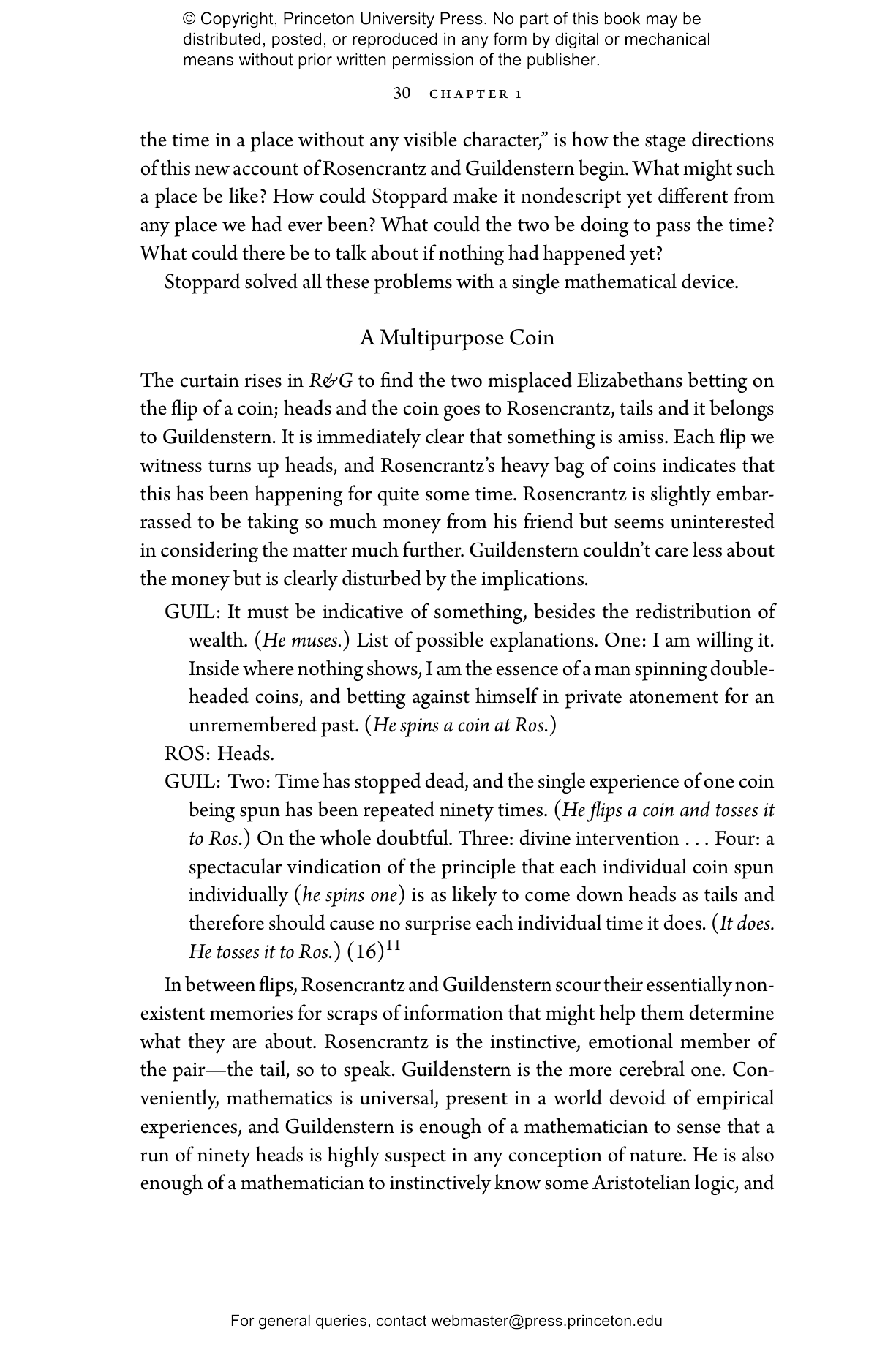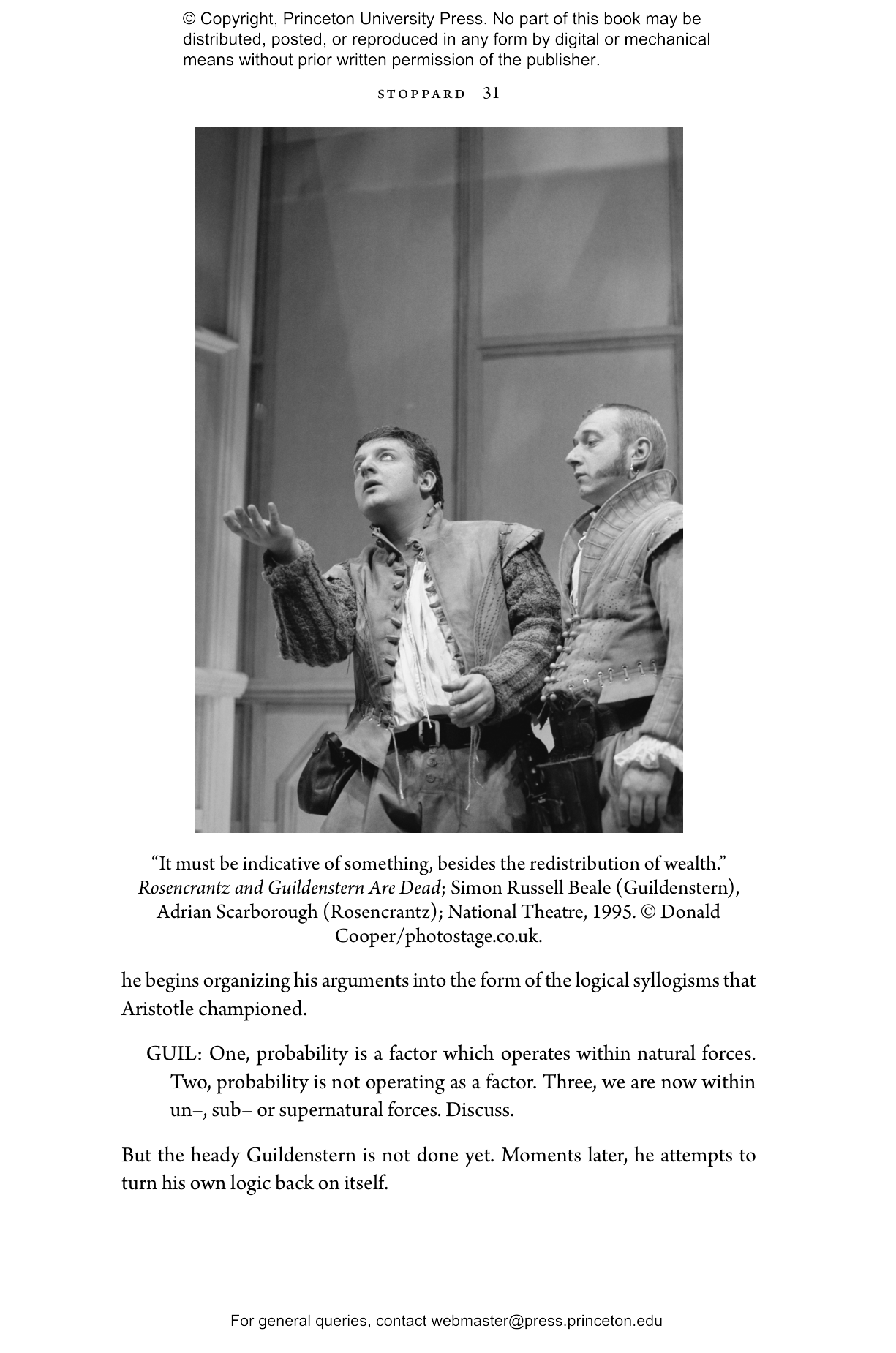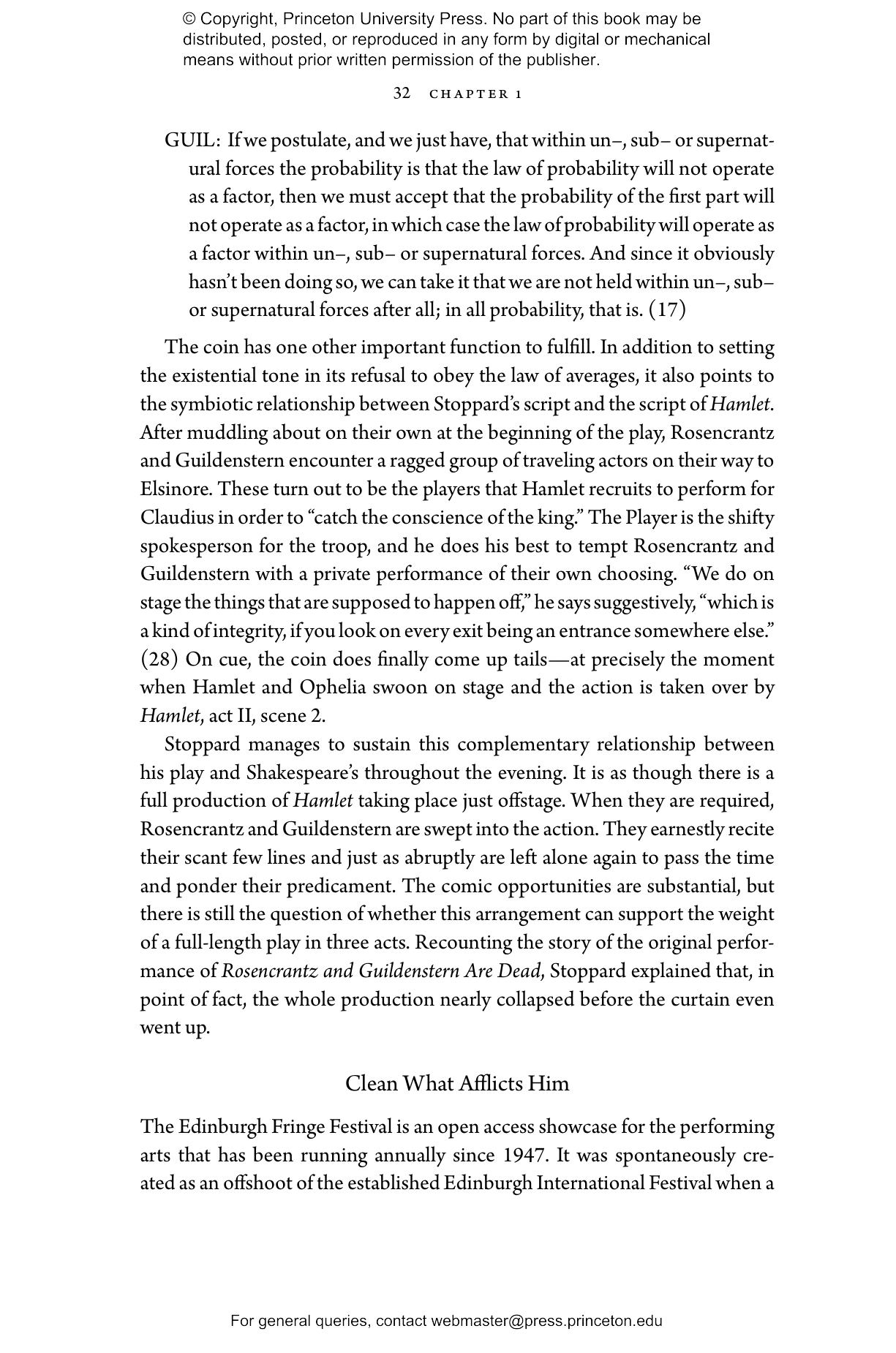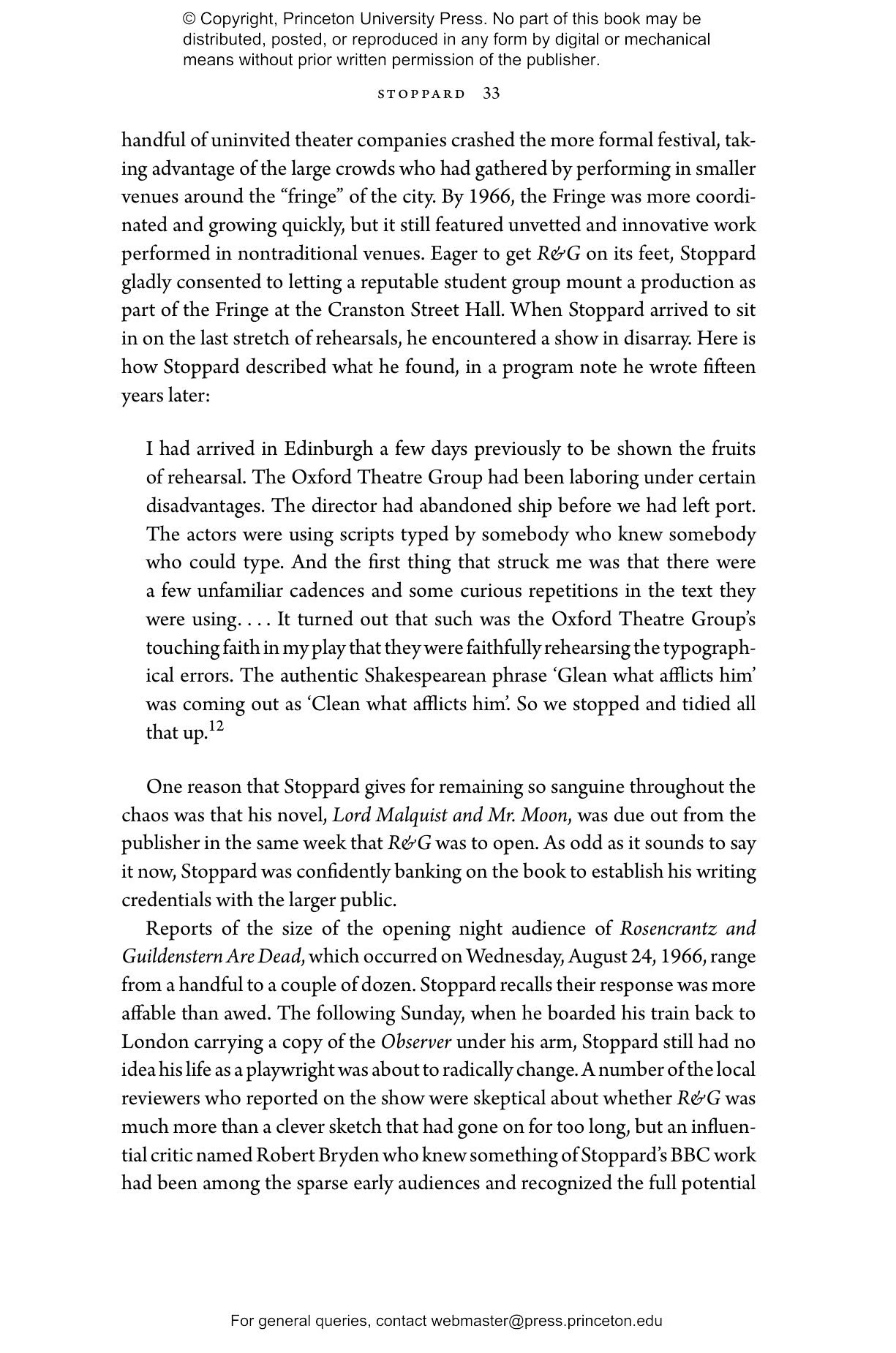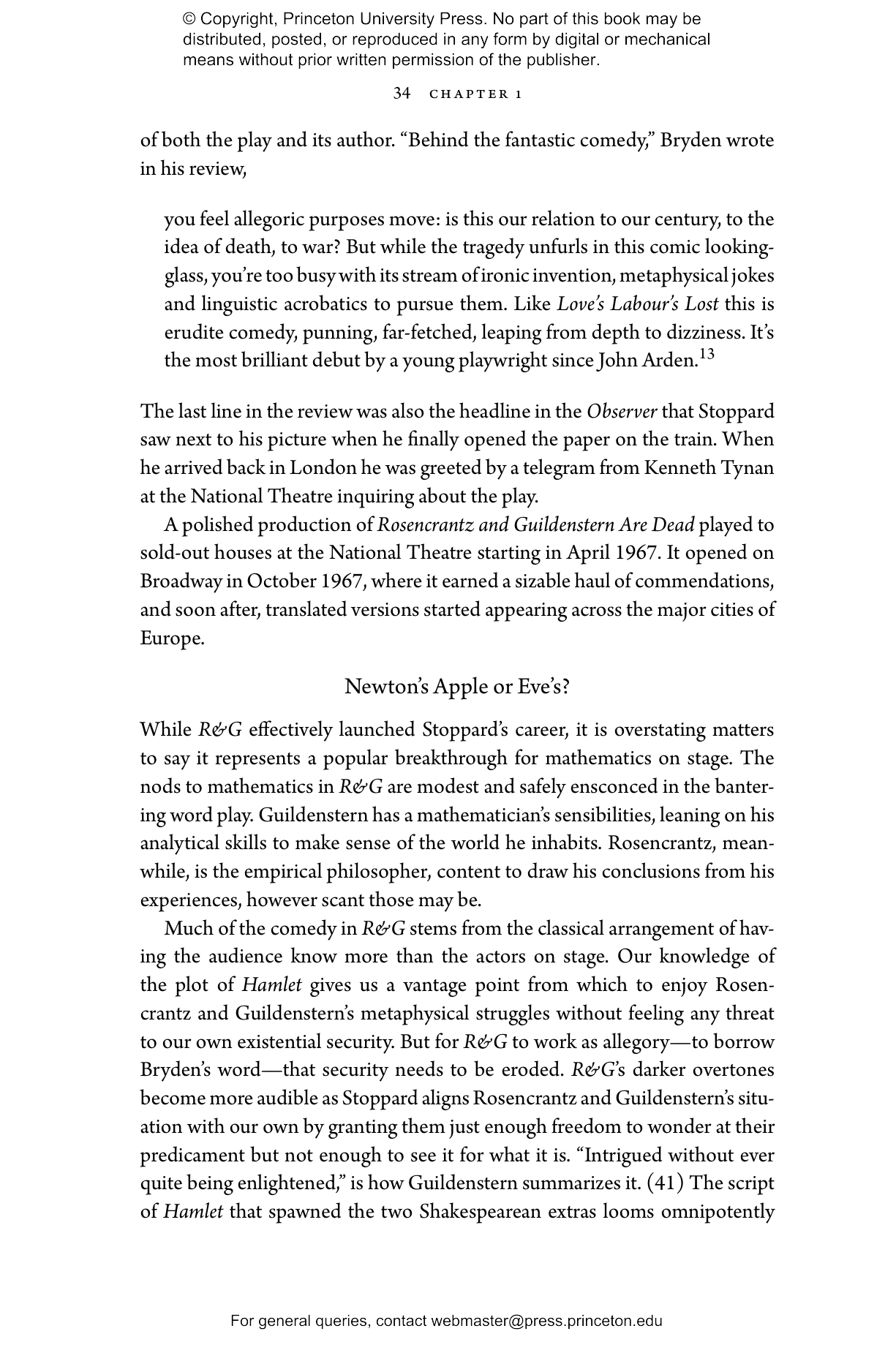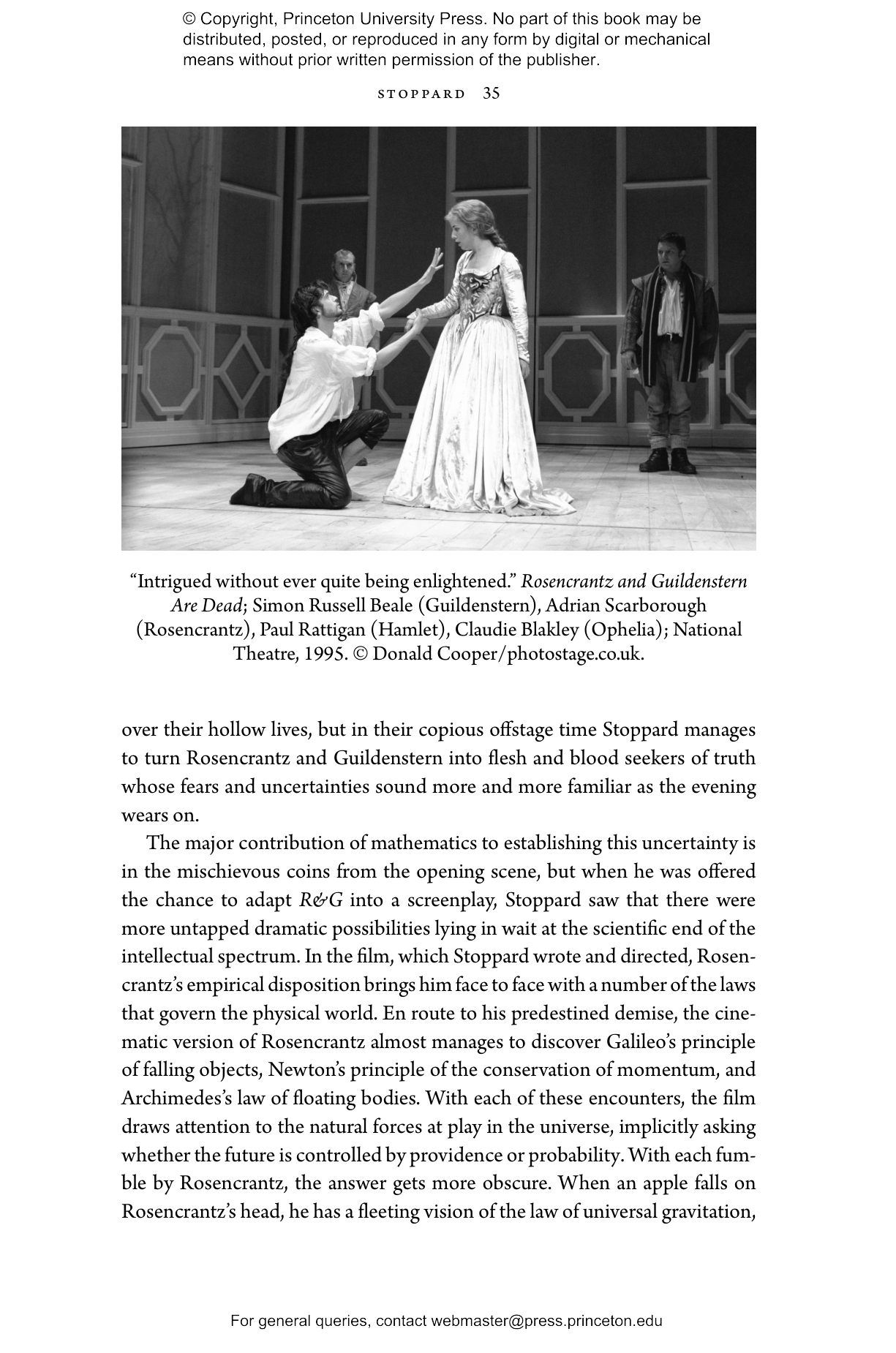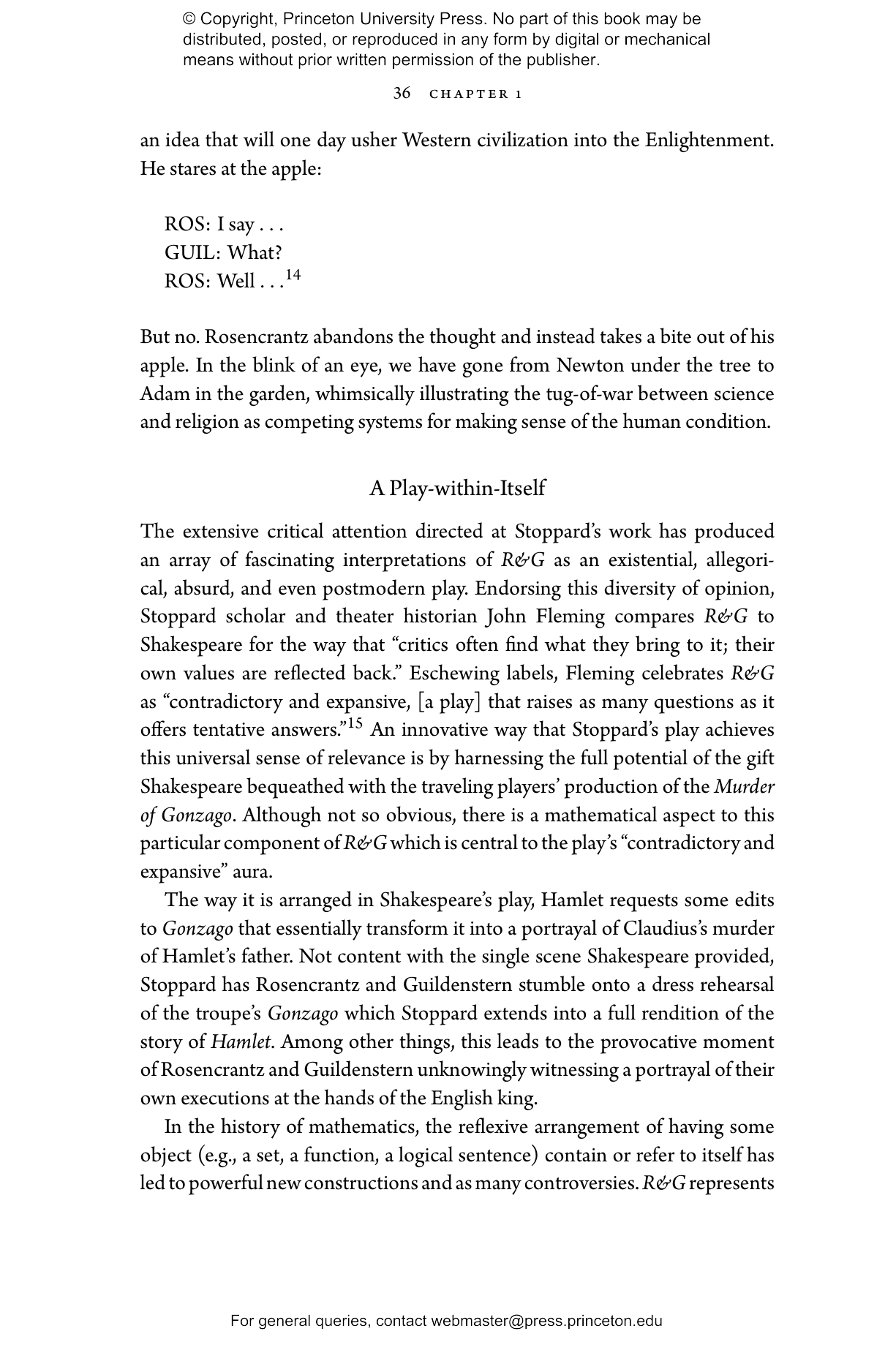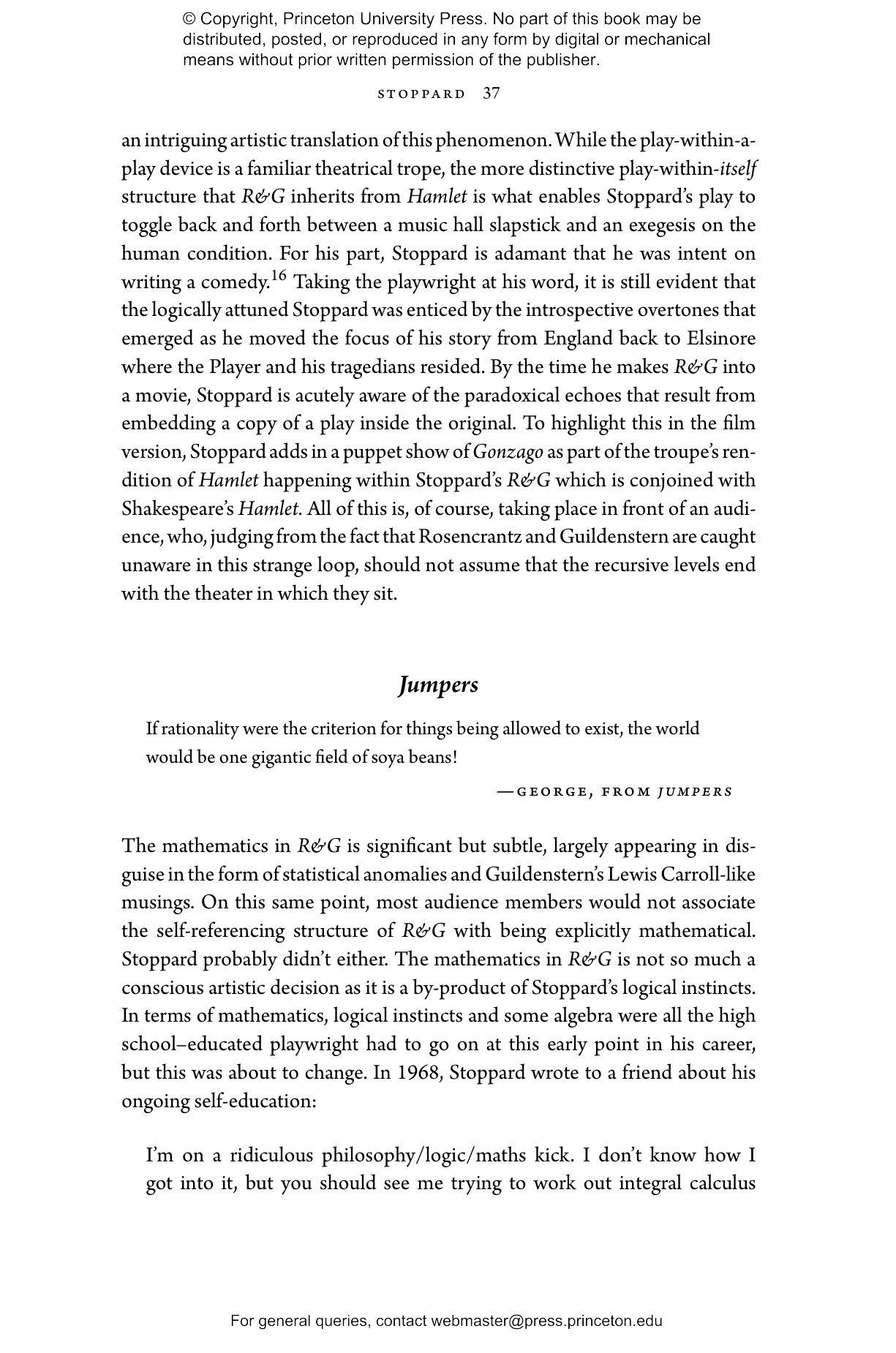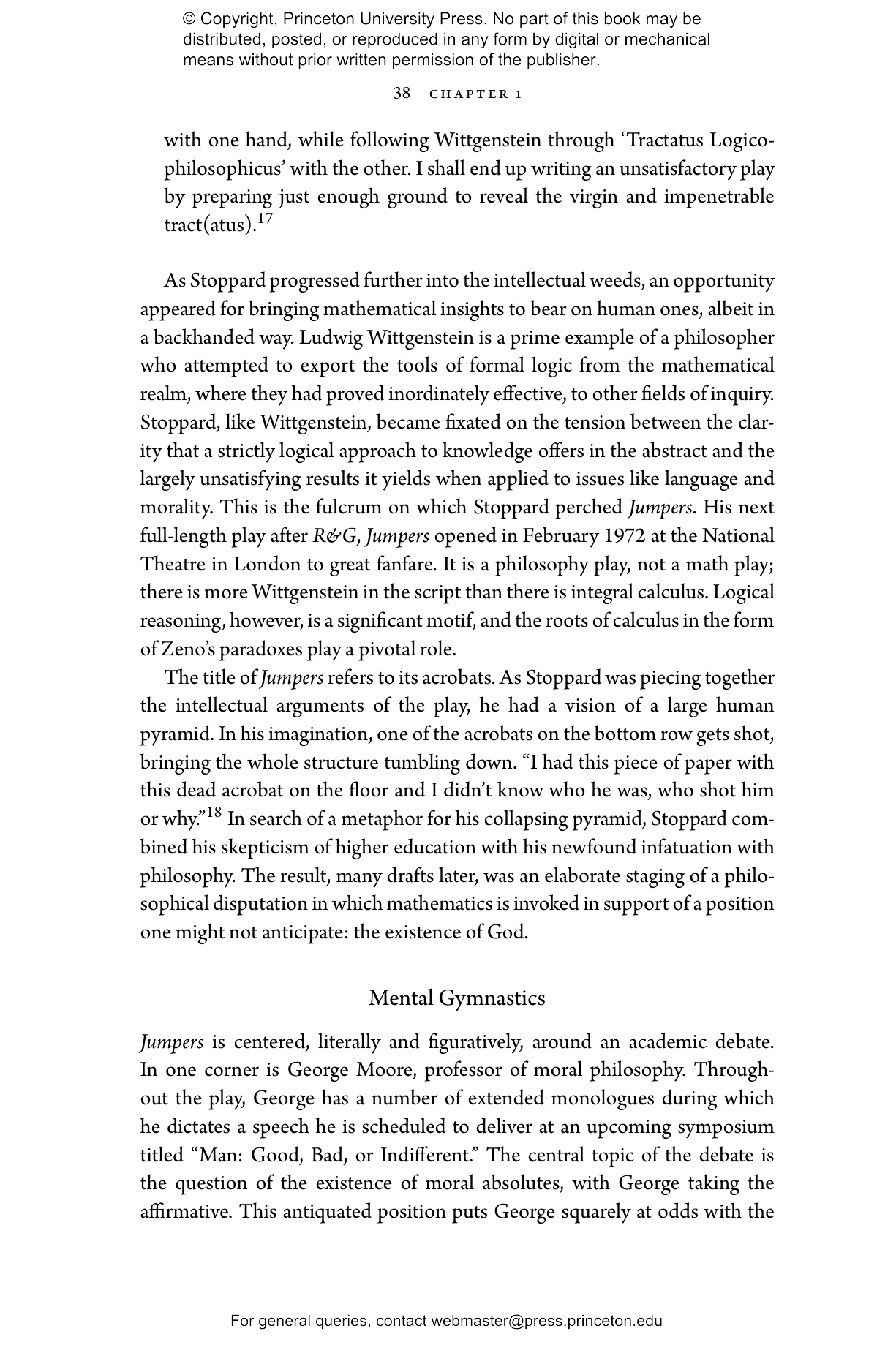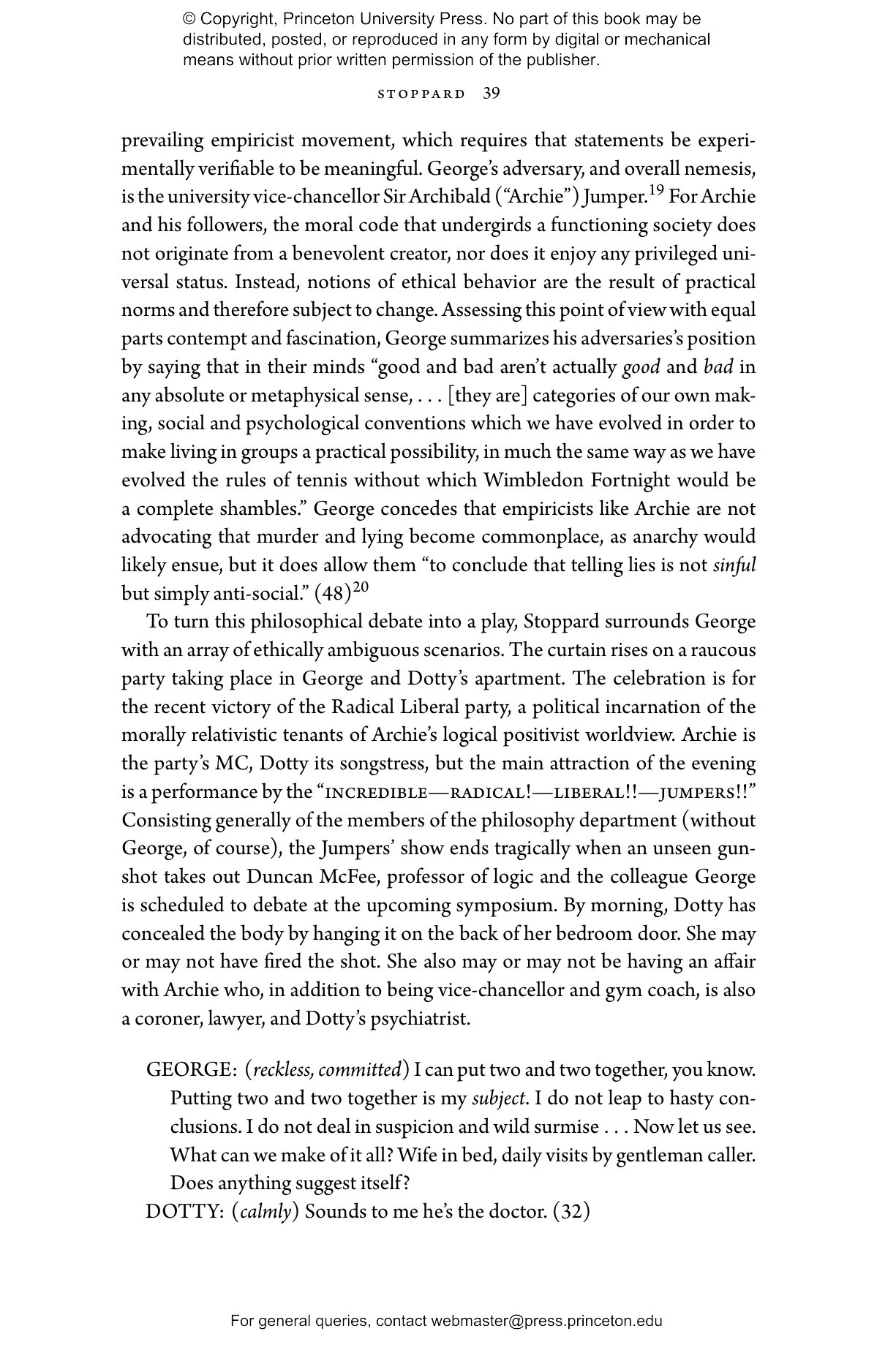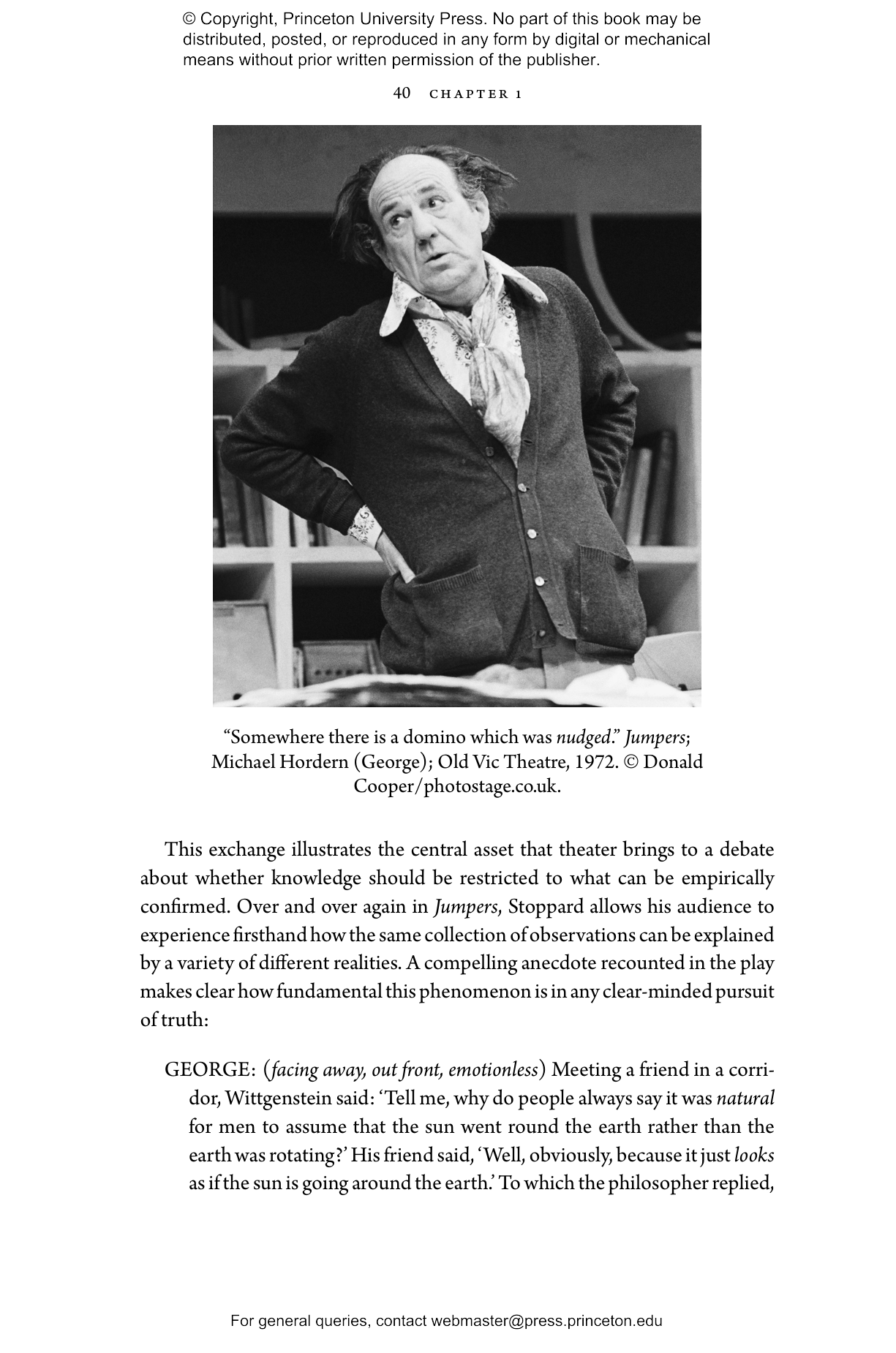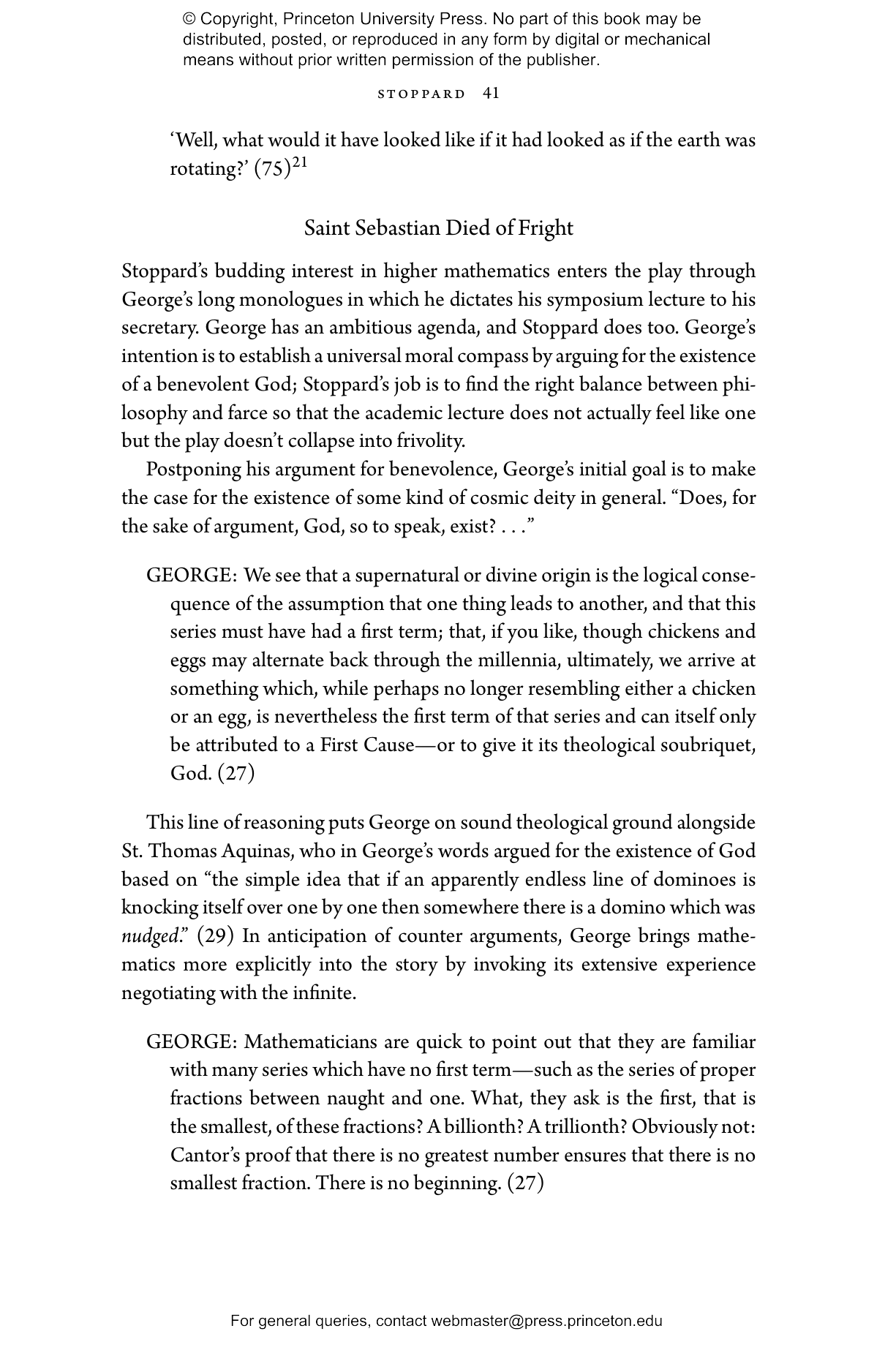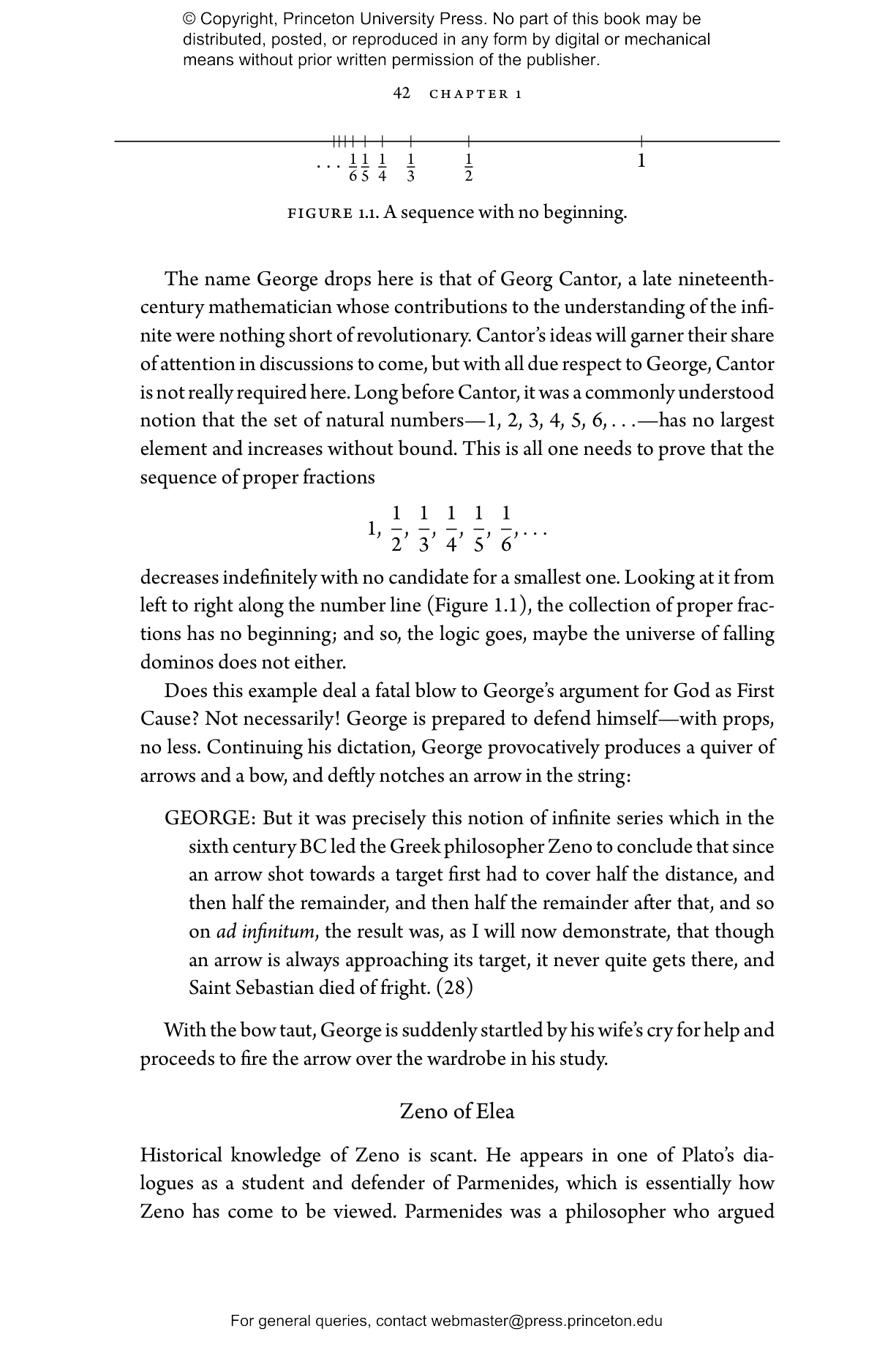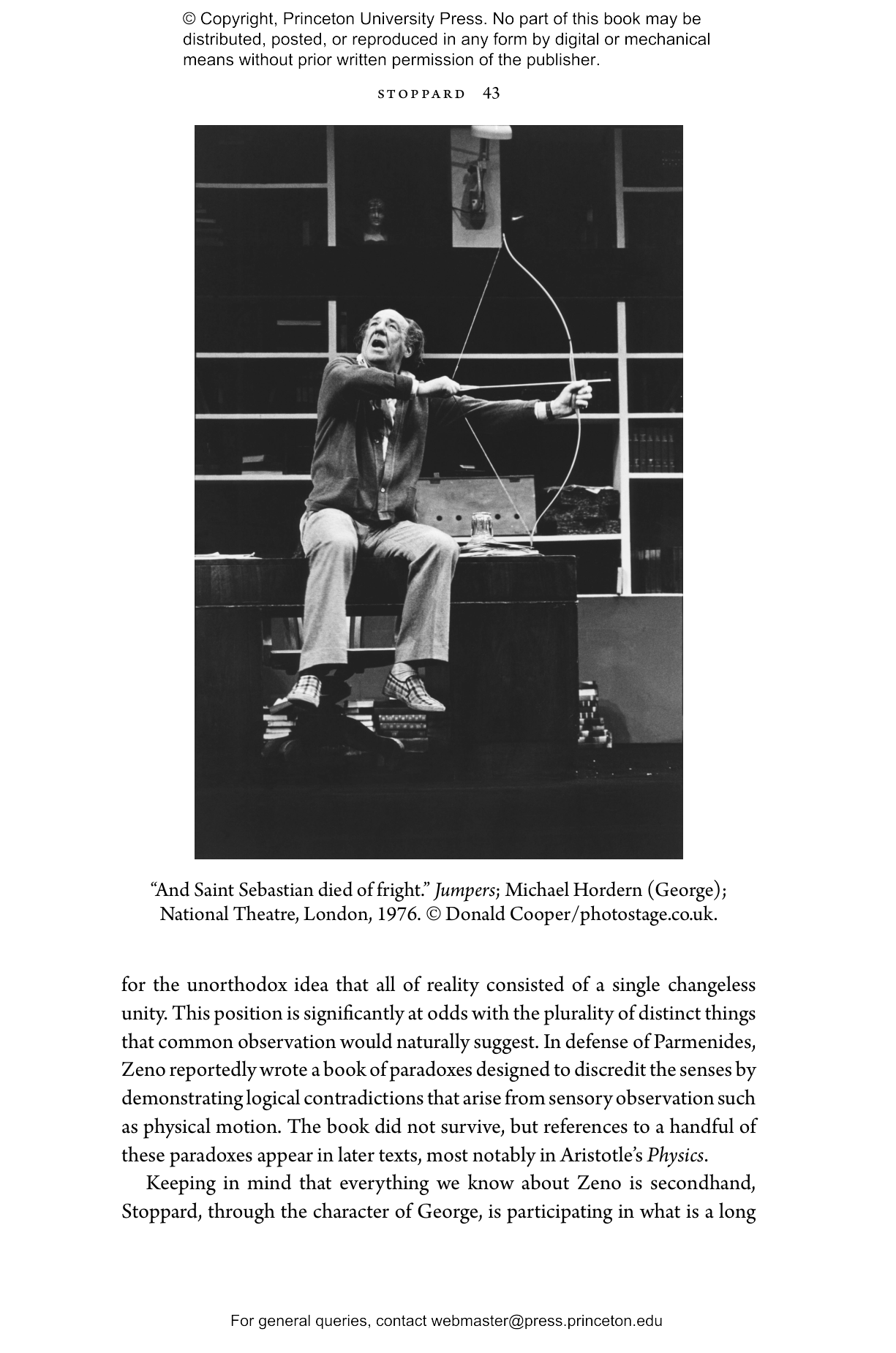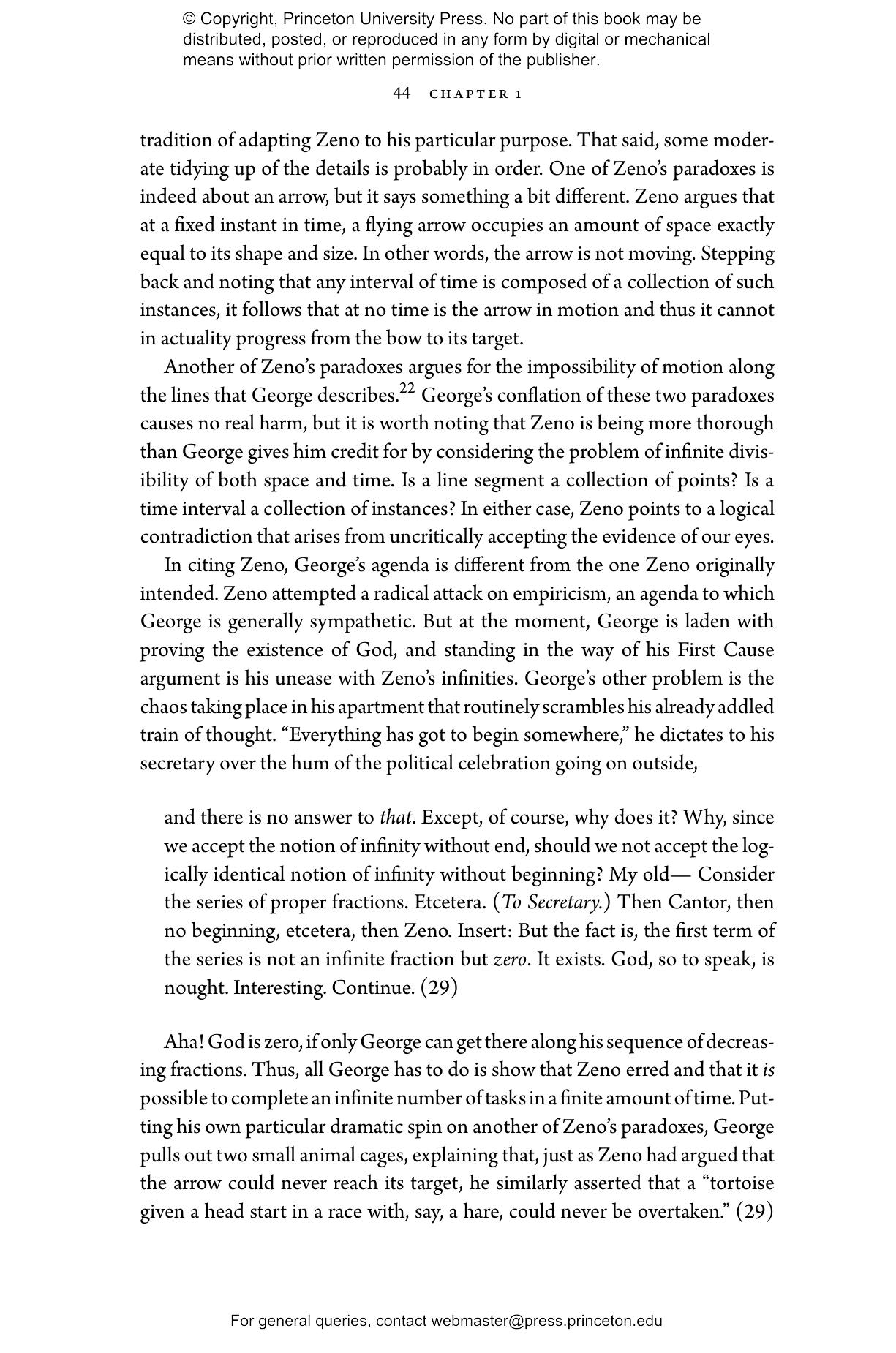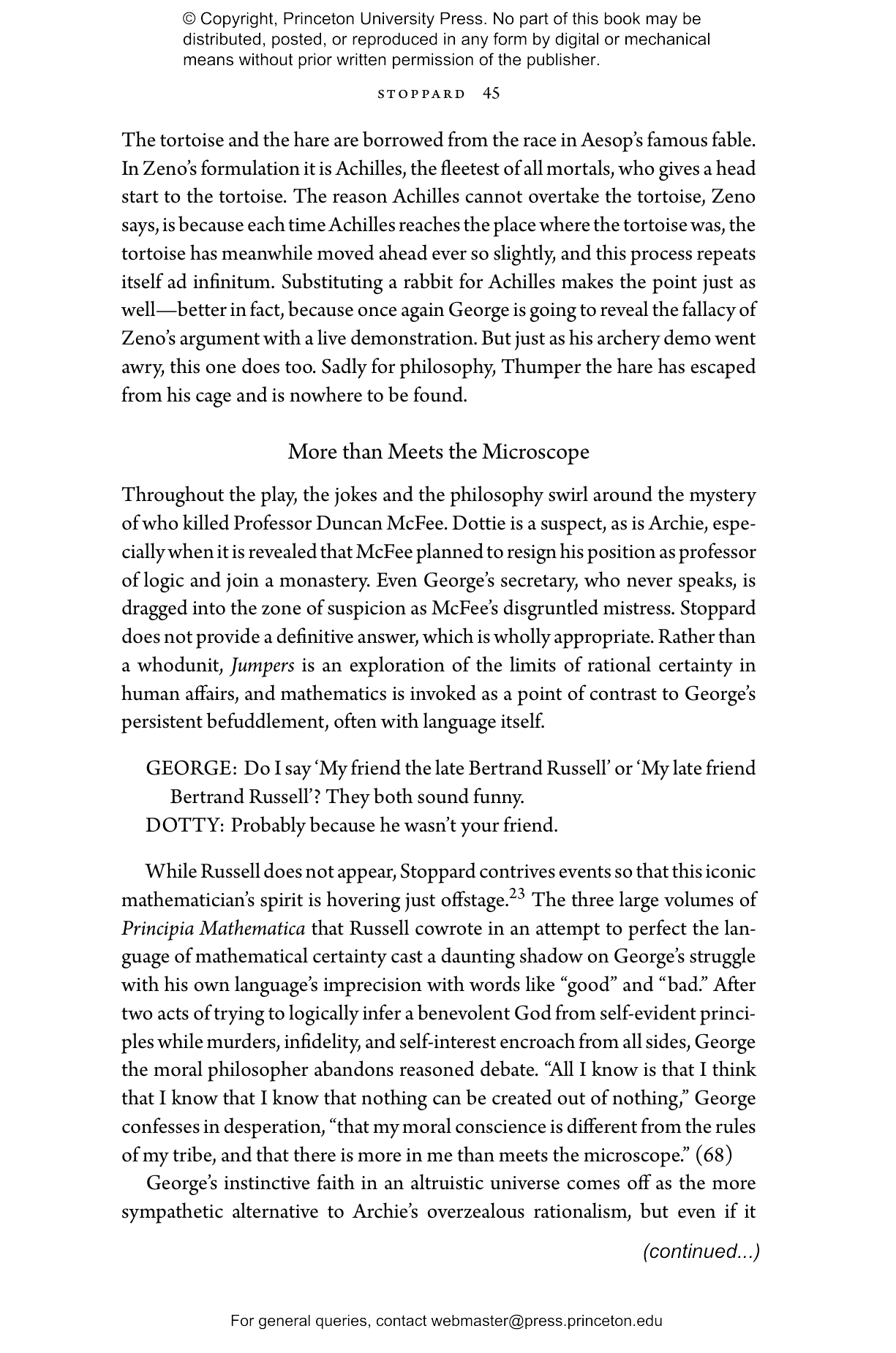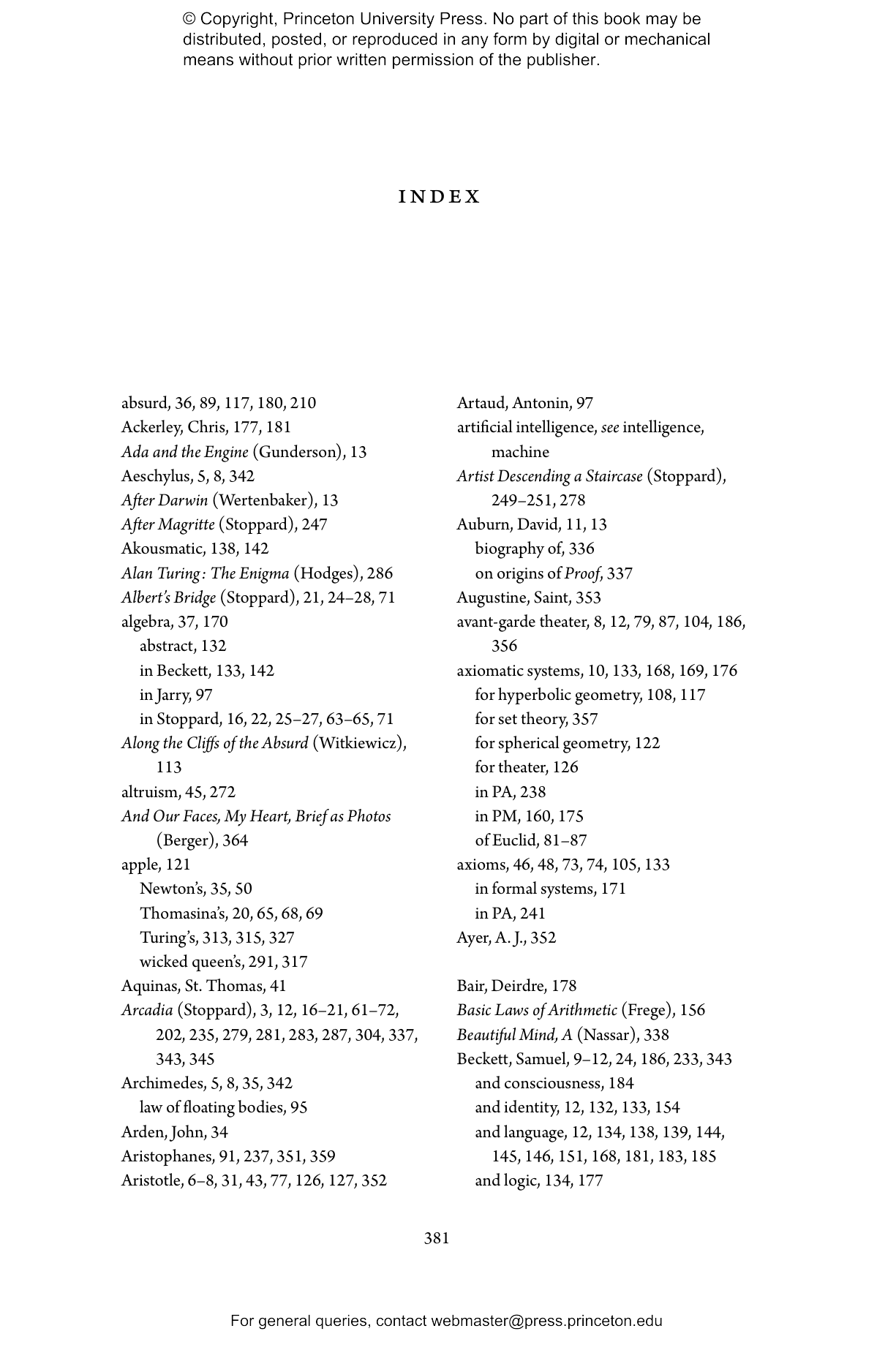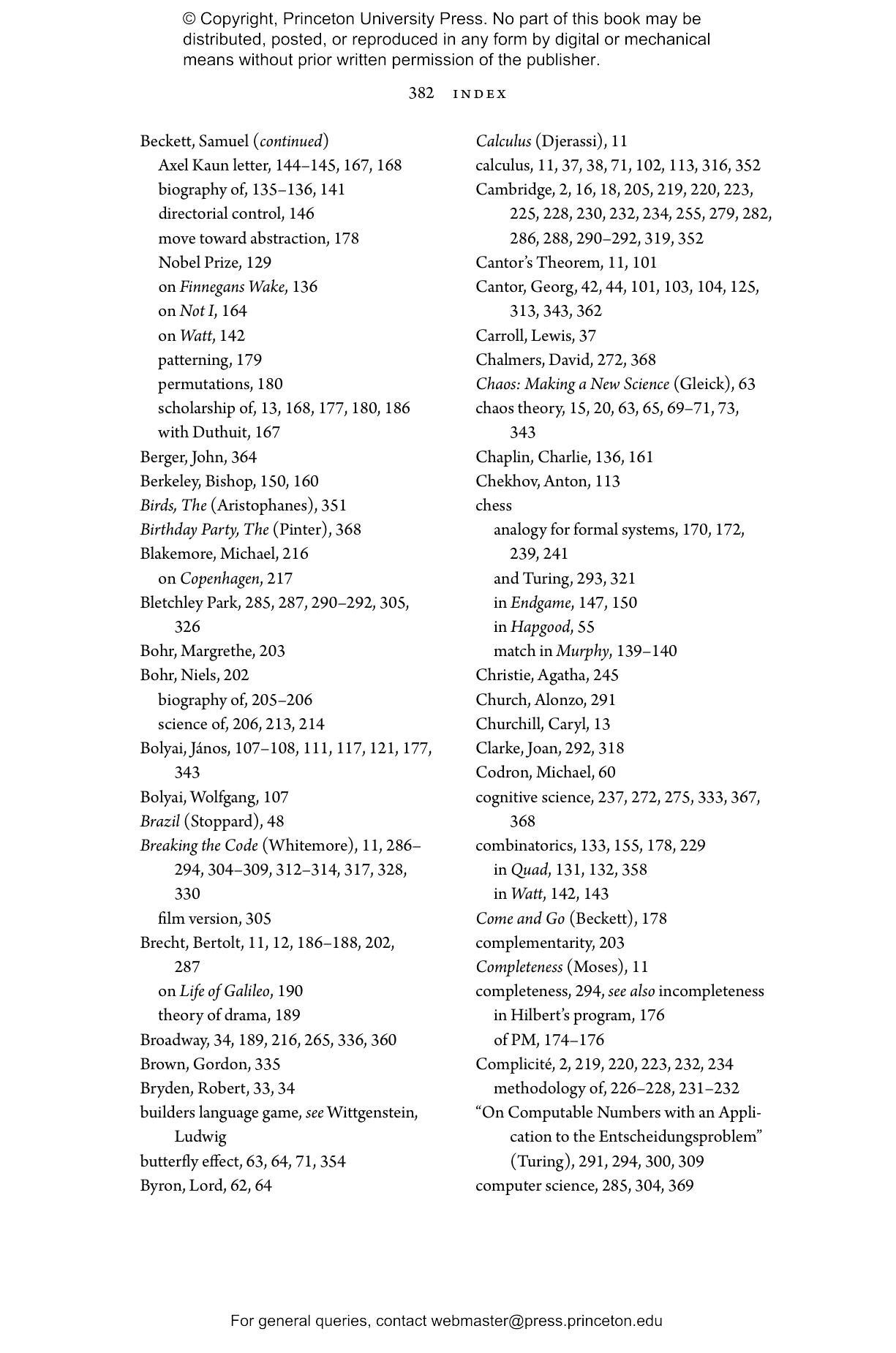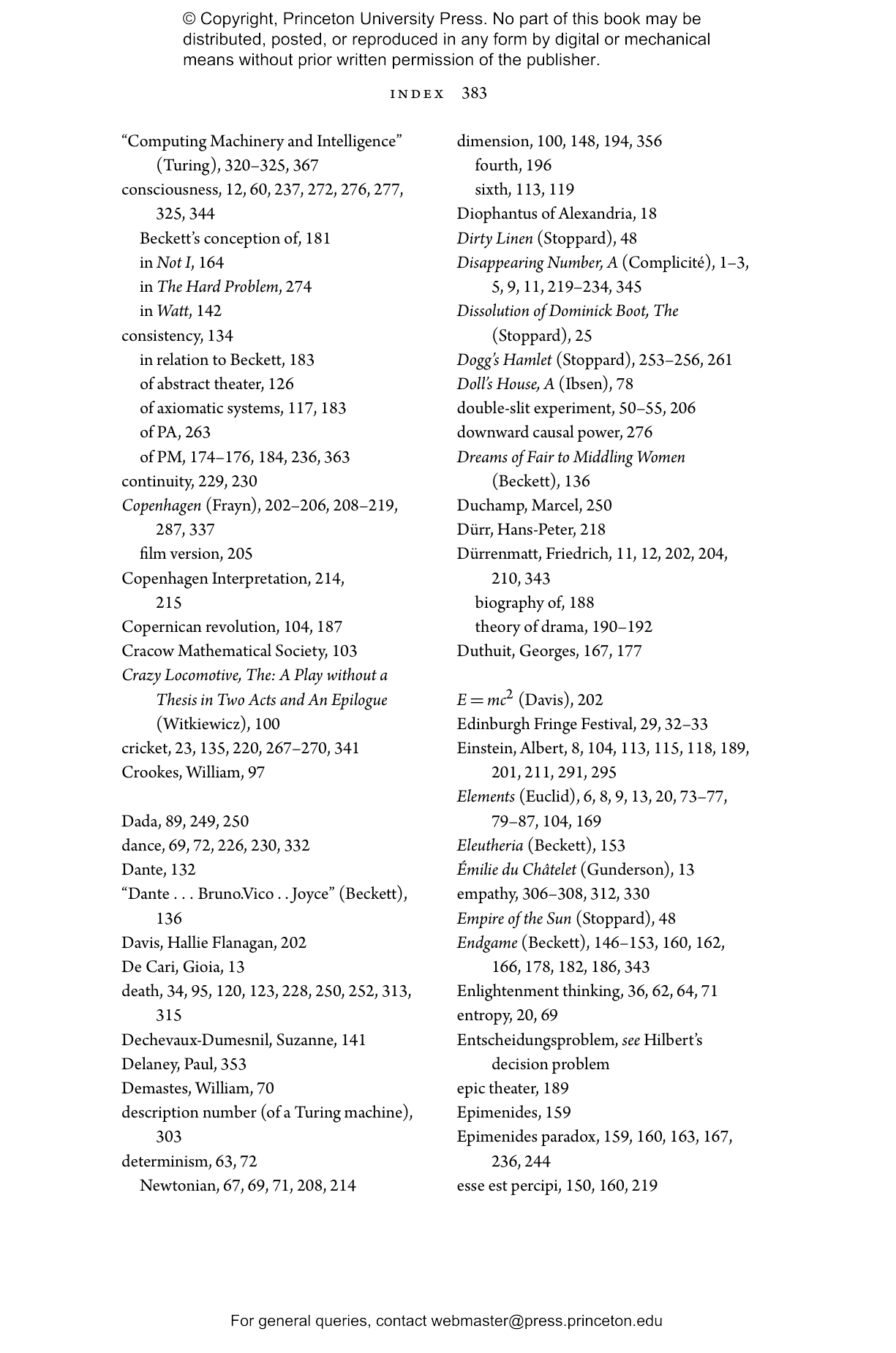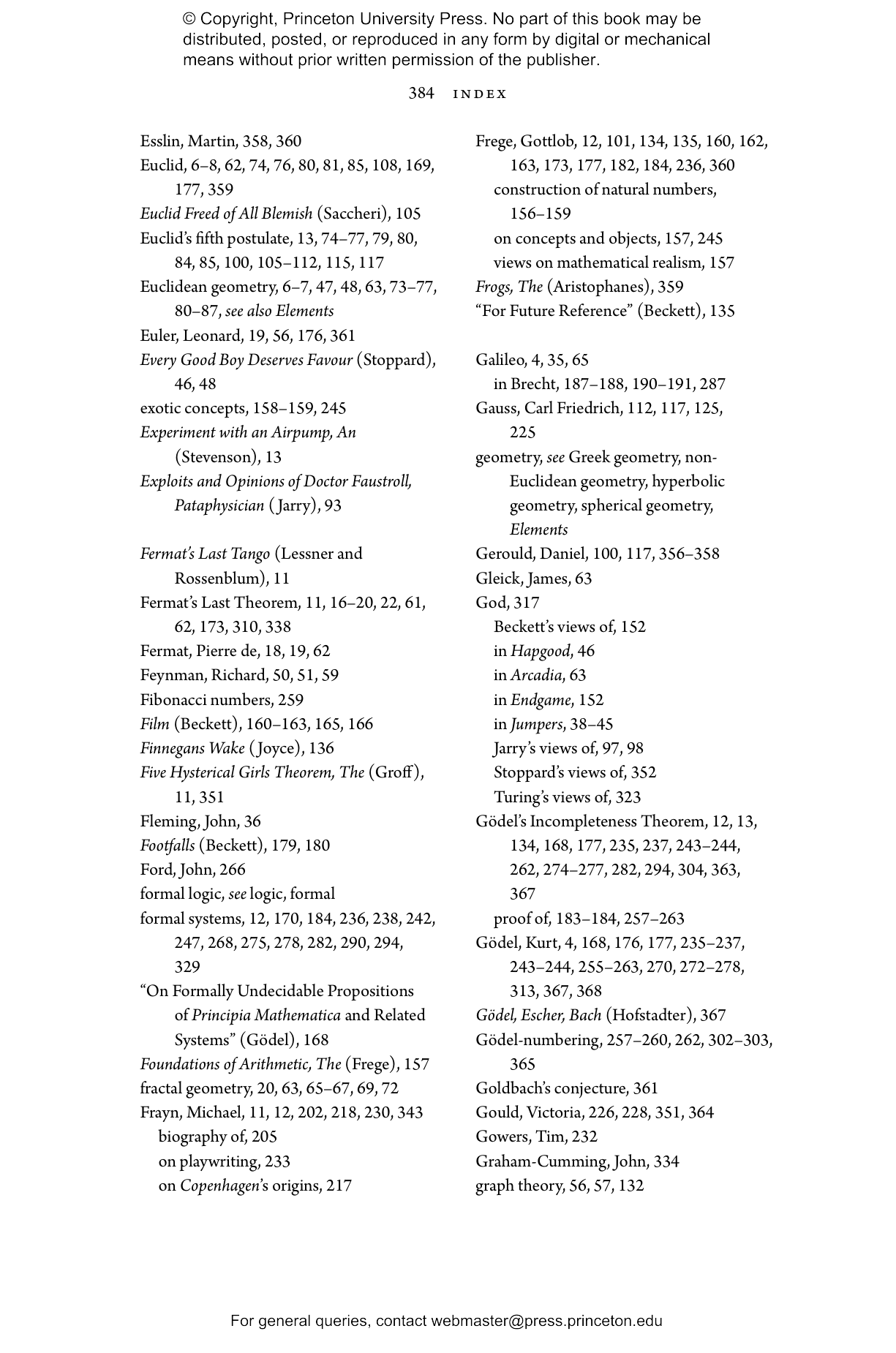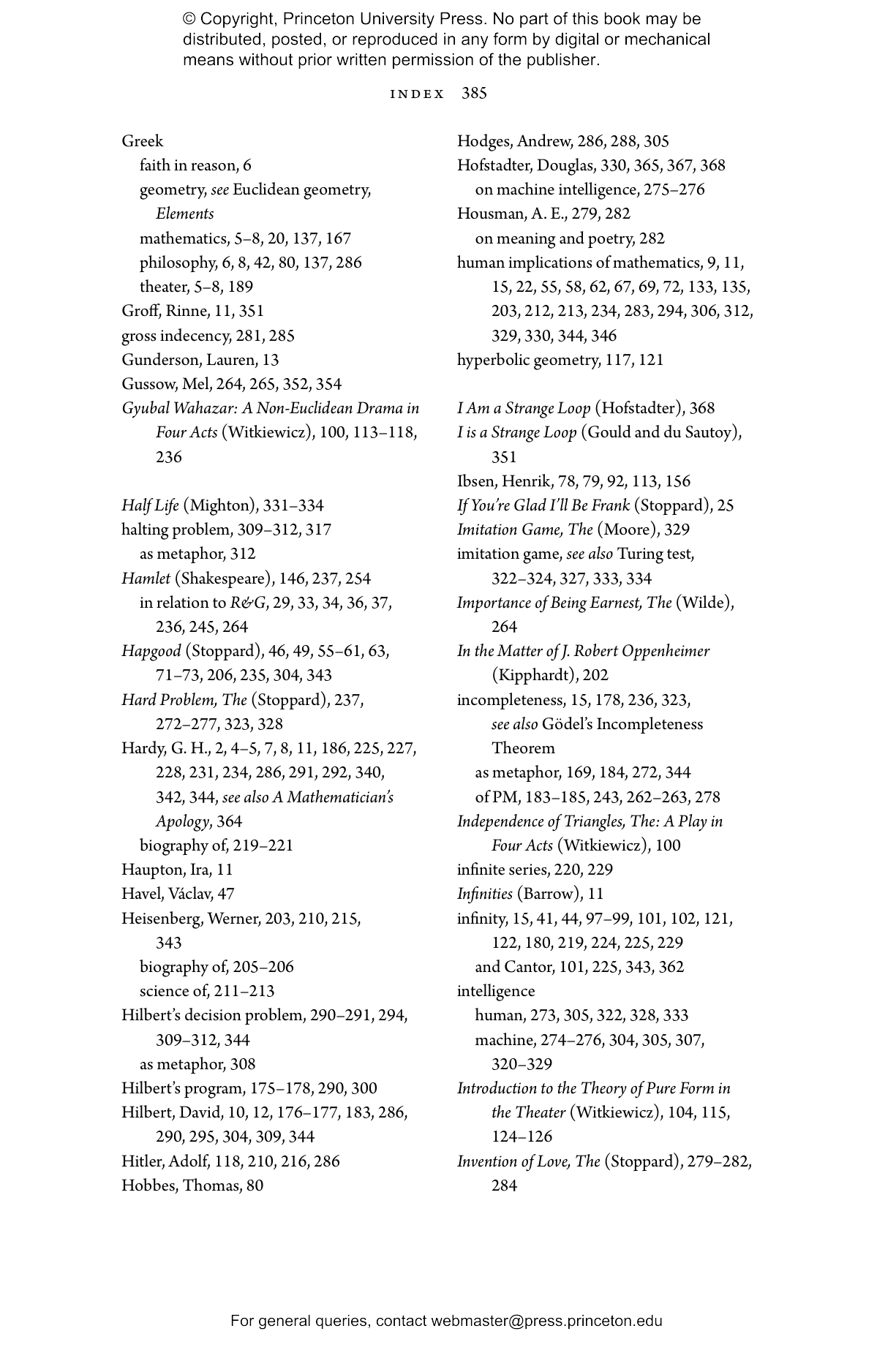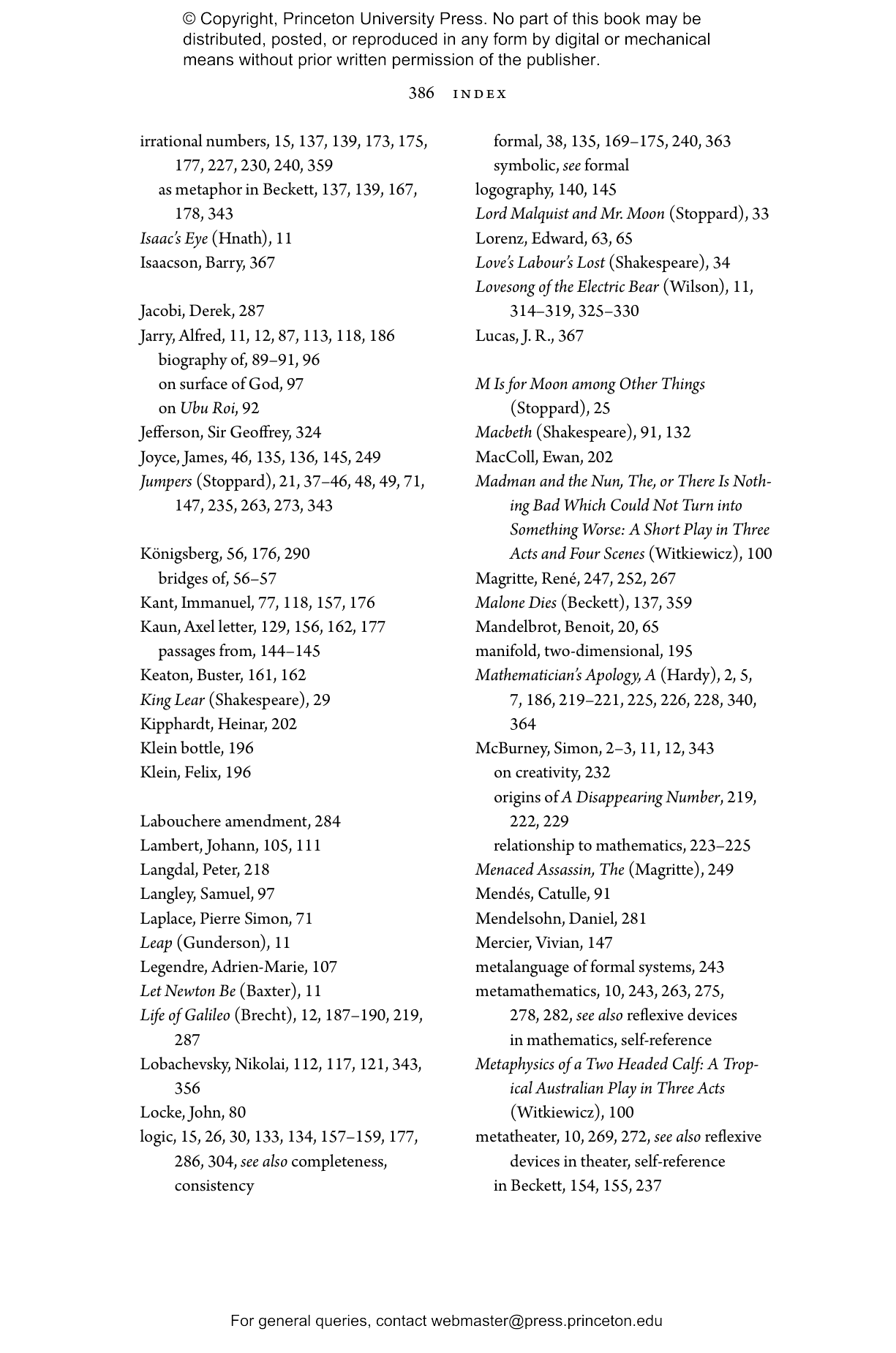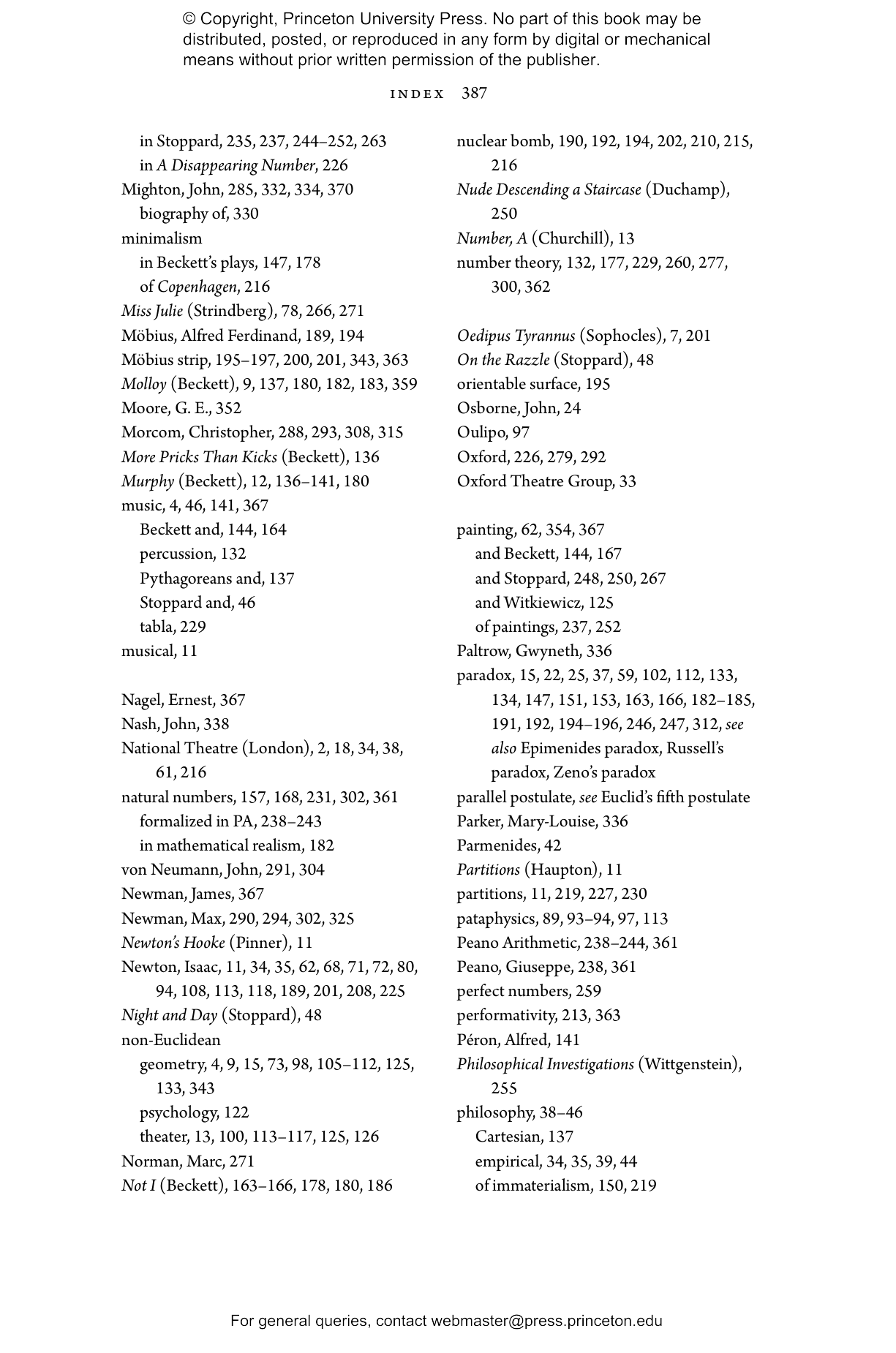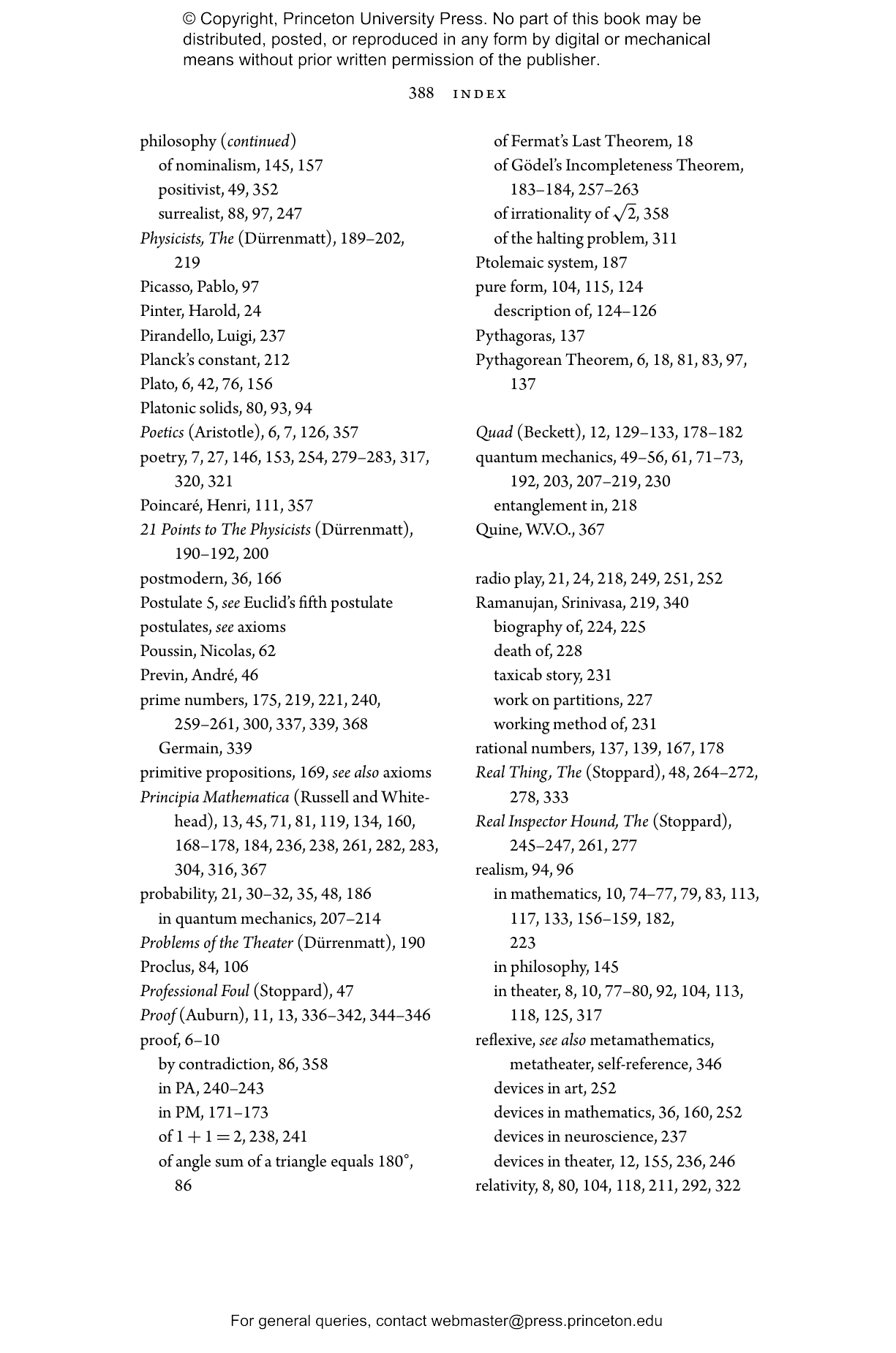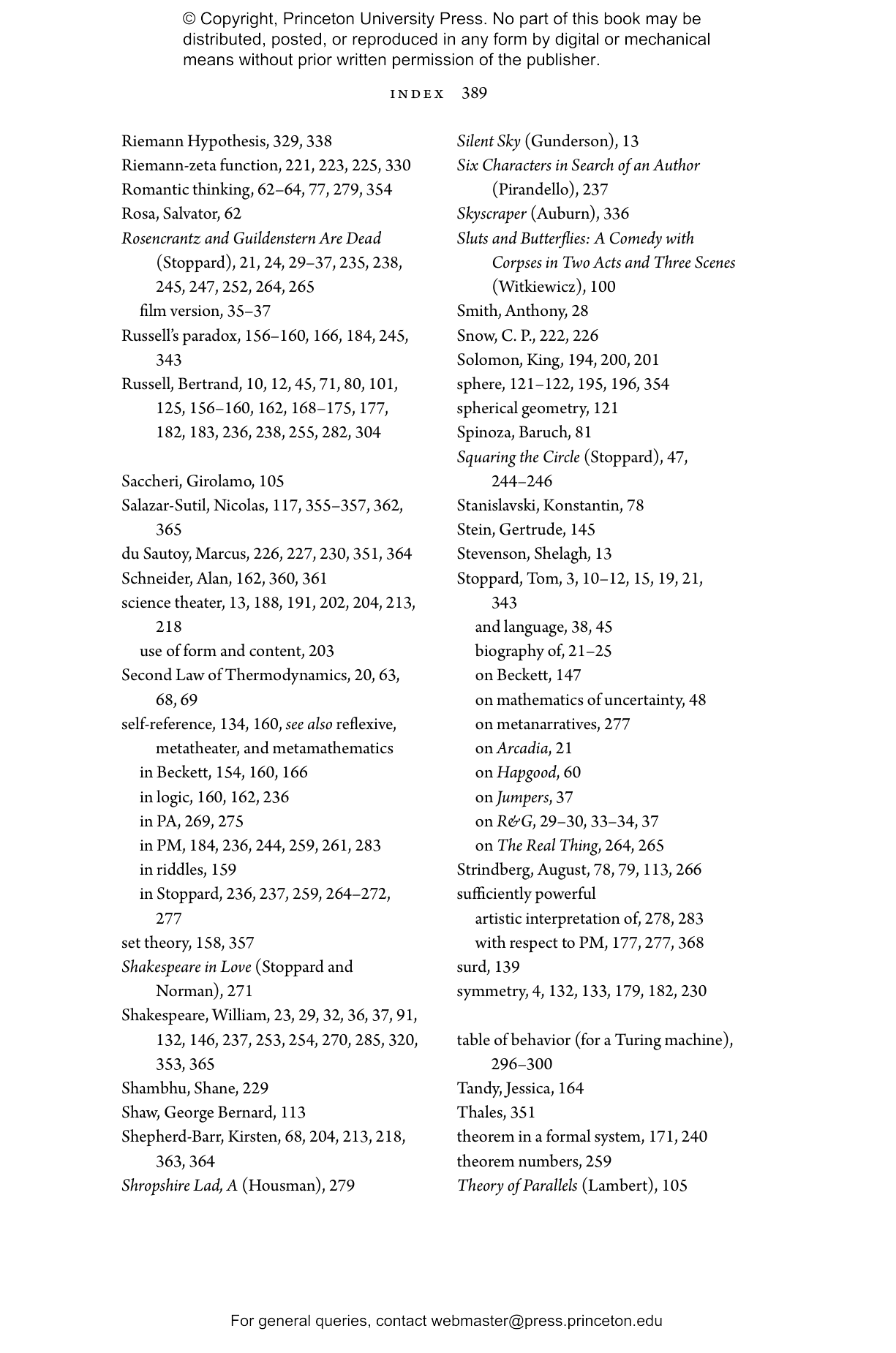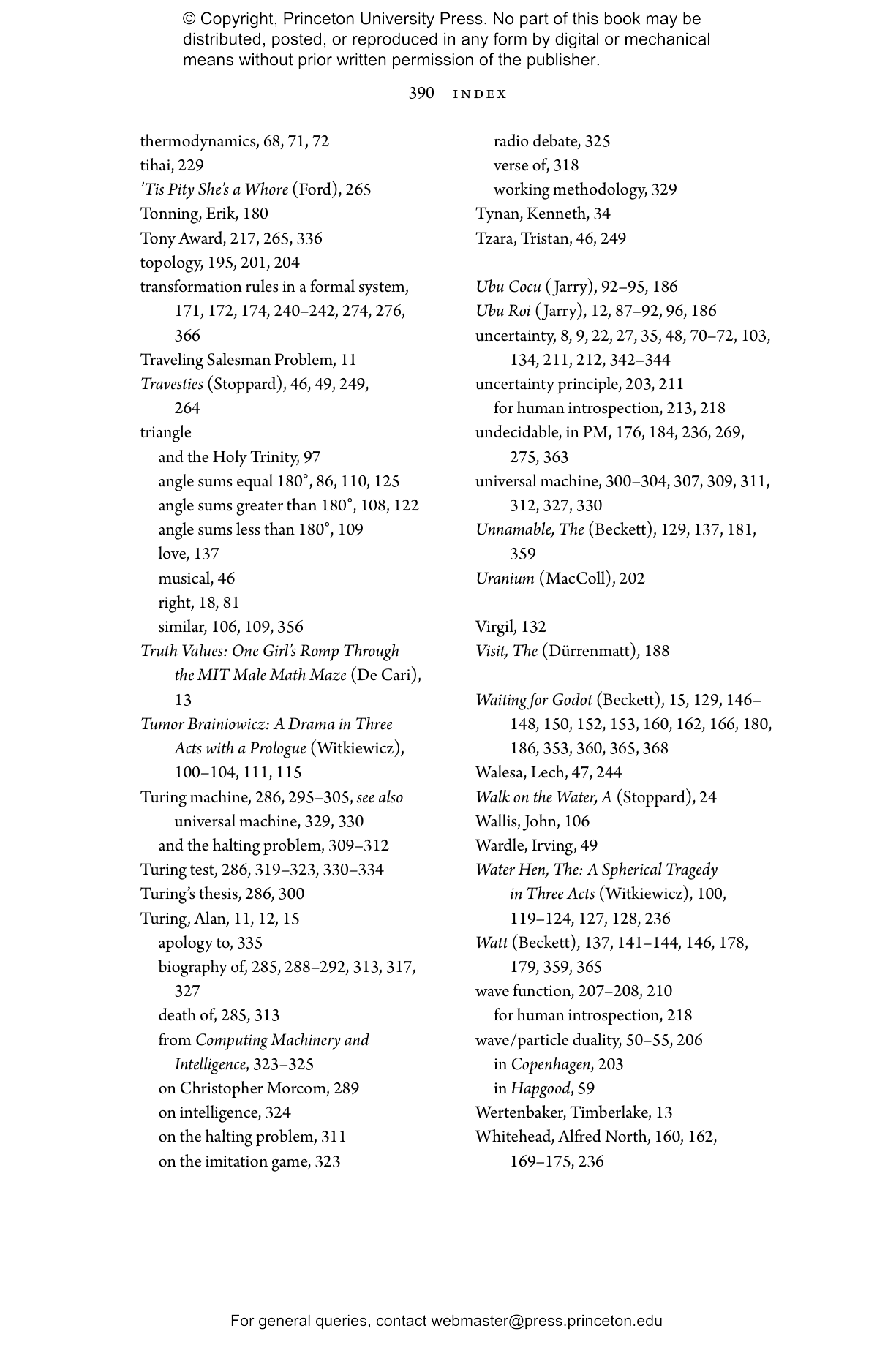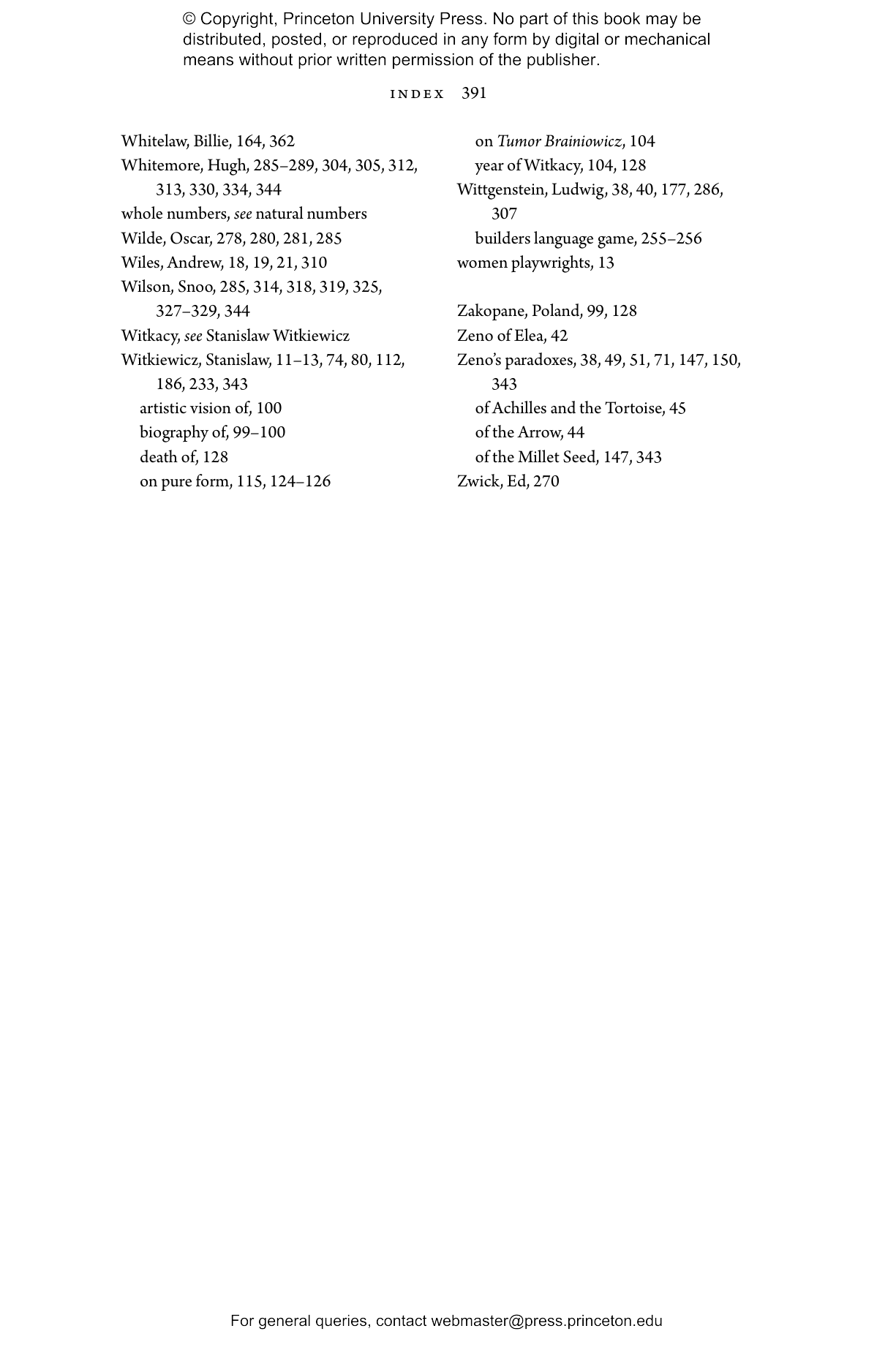The discovery of alternate geometries, paradoxes of the infinite, incompleteness, and chaos theory revealed that, despite its reputation for certainty, mathematical truth is not immutable, perfect, or even perfectible. Beginning in the last century, a handful of adventurous playwrights took inspiration from the fractures of modern mathematics to expand their own artistic boundaries. Originating in the early avant-garde, mathematics-infused theater reached a popular apex in Tom Stoppard’s 1993 play Arcadia. In The Proof Stage, mathematician Stephen Abbott explores this unlikely collaboration of theater and mathematics. He probes the impact of mathematics on such influential writers as Alfred Jarry, Samuel Beckett, Bertolt Brecht, and Stoppard, and delves into the life and mathematics of Alan Turing as they are rendered onstage. The result is an unexpected story about the mutually illuminating relationship between proofs and plays—from Euclid and Euripides to Gödel and Godot.
Theater is uniquely poised to discover the soulful, human truths embedded in the austere theorems of mathematics, but this is a difficult feat. It took Stoppard twenty-five years of experimenting with the creative possibilities of mathematics before he succeeded in making fractal geometry and chaos theory integral to Arcadia’s emotional arc. In addition to charting Stoppard’s journey, Abbott examines the post-Arcadia wave of ambitious works by Michael Frayn, David Auburn, Simon McBurney, Snoo Wilson, John Mighton, and others. Collectively, these gifted playwrights transform the great philosophical upheavals of mathematics into profound and sometimes poignant revelations about the human journey.
Awards and Recognition
- A Choice Outstanding Academic Title of the Year
Stephen Abbott is professor of mathematics at Middlebury College, where he has been teaching for thirty years. He is the author of the widely used textbook Understanding Analysis and theater events chair for the Bridges Organization, a professional association dedicated to exploring the intersection of mathematics and art.
"Abbott proves a companionable guide to the coincident developments in mathematics and theater, breaking down in layman’s terms such concepts as non-Euclidian geometry and explaining just how they relate to Stoppard, Beckett, Brecht, Jarry, and other avant-garde playwrights."—Robert Erickson, The New Criterion
"[Abbott] masterfully interweaves mathematical ideas and theatrical works. . . . A wonderful gem for anyone interested in mathematics or theater—or both. Encore!"—J. Johnson, Choice
"Extraordinary."—Paul J. Campbell, Mathematics Magazine
"Absorbing. . . . A joy to read but the most authoritative, comprehensive, and accessible account we have of the relationship between theatre and mathematics."—Kirsten Shepherd-Barr, The British Society for Literature and Science
"Throughout the book, Abbott offers many suggestions for why theater is an ideal tool with which to explore mathematical ideas."—Notices of the American Mathematical Society
"The Proof Stage is a revelation. It is a brilliant addition to the field of theater and science that will appeal to both theater scholars and mathematicians, as well as the general reader and theatergoer, whether math-savvy or mathematically-challenged. We are in the best of hands as Abbott takes us on a journey through theater’s engagement with mathematics over the past century and shows us, with clarity, warmth, and wit, how playwrights have been using math to create deep meaning as well as great performances. Abbott is that rare combination: a mathematician who is also a theater-maker, and the ideal guide to help us find out, as he so eloquently puts it, ‘what meaningful relevance pure mathematics can have to the flesh-and-blood business of a life on earth.’ He provides ground-breaking analyses of plays by Beckett and Stoppard, whose love of mathematics naturally puts them center-stage in Abbott’s book; he also shines new light on theater’s enfant terrible Alfred Jarry, looks at a raft of plays relating to Alan Turing, considers works by Frayn, Durrenmatt, and McBurney, and reveals the mathematical thread running through dozens of other works for the stage. This book is a must-read for anyone interested in theater and science as well as in interdisciplinarity more broadly, and in the question of how seemingly unrelated knowledge domains interact and speak to each other to generate new ideas and new ways of understanding the world."—Kirsten Shepherd-Barr, author of Theatre and Evolution from Ibsen to Beckett
“A wonderful backstage pass to the mathematical ideas that have inspired some of the great works of theater in the last decades.”—Marcus du Sautoy, author of The Music of the Primes
“Theater and mathematics might seem like entirely separate enterprises, but in this lucid and graceful book Stephen Abbott shows that this is not the case. He makes a convincing argument that theater, more so than other art forms, is especially well-suited to presenting mathematical ideas. A wonderful achievement!”—Jason Rosenhouse, author of Games for Your Mind: The History and Future of Logic Puzzles
“The complementarity of paradigm shifts in science and culture is a theme of infinite fascination. In this remarkable book, Stephen Abbott examines the mathematics of a new theater: the translation of non-Euclidean geometry, quantum relativity, and Turing machines into the aesthetics of the stage.”—C. J. Ackerley, coauthor of The Grove Companion to Samuel Beckett
